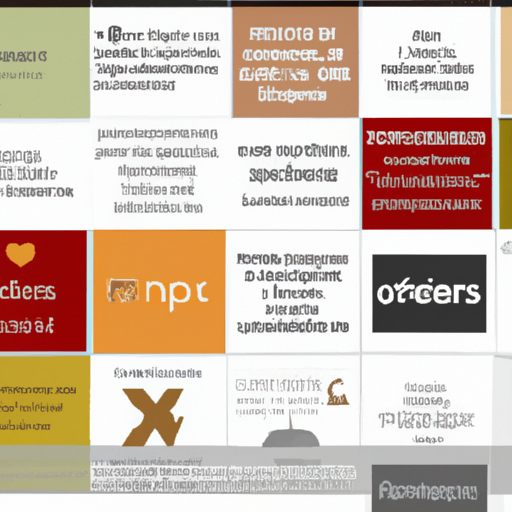Are There Any Specific Meditation Or Visualization Techniques That Can Help Me Align With Abundance And Attract Positive Outcomes?
Hey there! Curious to know if there are any specific meditation or visualization techniques that can help you align with abundance and attract positive outcomes? Well, you’ve come to the right place! In this article, we will dive deep into the world of meditation and visualization and explore different techniques that can assist in aligning yourself with abundance and attracting positive outcomes. Get ready to discover some amazing practices that can enhance your manifesting abilities and bring more prosperity into your life!
Wondering if there are any specific meditation or visualization techniques that can help you align with abundance and attract positive outcomes? Well, you’re in luck! This article will provide you with valuable insights and techniques to help you on your journey towards abundance. From guided meditations to visualizing your desired outcomes, we will explore various methods that can assist in aligning your energy with abundance and manifesting positive results. So, get ready to learn and apply these techniques to invite more abundance and positivity into your life!
Understanding Abundance and Positive Outcomes
Abundance and positive outcomes are concepts that play a crucial role in our lives. The idea of abundance refers to the state of having more than enough, whether it be wealth, love, opportunities, or any other desired aspect of life. On the other hand, positive outcomes refer to the desired results we hope to achieve in different areas of our lives, such as success, happiness, and fulfillment.
Defining abundance and positive outcomes
Abundance goes beyond mere material possessions; it encompasses a mindset of gratitude, appreciation, and the belief that there is always enough for everyone. It is understanding that the universe is abundant, and by aligning ourselves with this abundance, we can attract more of it into our lives.
Positive outcomes, on the other hand, are the favorable results we desire. These can be achieved through a variety of actions, choices, and mindsets. By adopting a positive mindset and aligning our thoughts, emotions, and actions with abundance, we can attract the positive outcomes we seek.
The importance of aligning with abundance and positive outcomes
Aligning with abundance and positive outcomes is essential as it enables us to live a life of fulfillment, prosperity, and happiness. When we align ourselves with abundance, we open ourselves up to the possibilities and opportunities that the universe has to offer.
By focusing on positive outcomes and believing in our ability to achieve them, we create a mindset of success and resilience. This mindset allows us to navigate through challenges and setbacks with optimism, ultimately leading us closer to our desired results.
The Power of Meditation in Aligning with Abundance
Meditation is a powerful tool that can help us align with abundance and attract positive outcomes. It allows us to quiet our minds, connect with our inner selves, and tap into the limitless potential that resides within us.
Exploring the benefits of meditation in attracting abundance
Meditation provides numerous benefits that contribute to attracting abundance. It helps reduce stress and anxiety, which can block the flow of abundance. By calming our minds and bodies, we create a space for abundance and positive outcomes to enter our lives.
Additionally, meditation enhances our self-awareness and emotional regulation. With a clearer understanding of our thoughts, emotions, and beliefs, we can identify and let go of any limiting beliefs or blocks that may be inhibiting our abundance. This creates a fertile ground for new possibilities and opportunities to manifest.
Different meditation techniques to align with abundance
There are various meditation techniques that can help align us with abundance. One effective technique is mindfulness meditation. This involves focusing our attention on the present moment and accepting it without judgment. By cultivating a mindset of gratitude and appreciating the abundance already present in our lives, we open ourselves up to attracting more.
Another technique is guided visualization meditation. This involves using our imagination to vividly visualize the abundance and positive outcomes we desire. By engaging our senses and emotions in this visualization, we create a strong connection with our desires and increase the likelihood of manifesting them.

Visualizing Abundance for Positive Outcomes
Visualization is a powerful technique that can further enhance our ability to attract positive outcomes. It involves creating vivid mental images of our desired outcomes and consistently focusing on them.
Understanding the role of visualization in attracting positive outcomes
Visualization works by harnessing the power of our thoughts and emotions. When we consistently visualize our desired outcomes, we send a clear message to the universe about what we want to manifest. Our thoughts and emotions act as energetic signals that attract corresponding experiences and opportunities into our lives.
Visualization also helps shift our beliefs and mindset. As we consistently visualize our desired outcomes, we start to believe that they are not only possible but also within our reach. This belief then influences our thoughts, emotions, and actions, creating a positive cycle that leads to the manifestation of positive outcomes.
Effective visualization techniques for aligning with abundance
To align with abundance using visualization, it is important to be specific and detailed in our visualizations. By painting a clear picture of what we desire, we make it easier for the universe to bring it into reality. It is also crucial to engage all our senses and emotions during the visualization process. By feeling the emotions associated with our desired outcomes, we create a vibrational match for their manifestation.
Regularly setting aside dedicated time for visualization practice is highly beneficial. This allows us to immerse ourselves fully in the visualization process, strengthening our connection with abundance and positive outcomes.
Cultivating a Mindset of Abundance
Cultivating a mindset of abundance is a fundamental step in aligning ourselves with abundance and attracting positive outcomes. Our thoughts, beliefs, and attitudes shape our reality, and by consciously shifting them, we can create a life of abundance and fulfillment.
Shifting your mindset to attract abundance and positive outcomes
Shifting our mindset to attract abundance and positive outcomes involves recognizing and reframing any limiting beliefs or negative thought patterns that may be holding us back. It requires developing a deep sense of self-worth and deservingness, as well as nurturing a belief in the infinite possibilities that exist.
By practicing gratitude and focusing on abundance in all areas of our lives, we train our minds to see opportunities and blessings more readily. This abundance mindset opens us up to the flow of abundance in all its forms.
Mindset techniques and affirmations to enhance abundance alignment
Affirmations can be a powerful tool in cultivating a mindset of abundance. By repeating positive statements about abundance and positive outcomes, we reprogram our subconscious minds to believe in and attract these experiences. Affirmations such as “I am deserving of abundance in all areas of my life” and “I attract positive outcomes effortlessly” can help reinforce our commitment to aligning with abundance.
Additionally, practicing self-care and surrounding ourselves with positive influences can contribute to cultivating a mindset of abundance. Engaging in activities that bring us joy and fulfillment reminds us of the abundance we already have and aligns us with more abundance.

Practical Steps to Aligning with Abundance
Incorporating meditation and visualization into our daily routine is a practical and effective way to align with abundance and attract positive outcomes.
Incorporating meditation and visualization into your daily routine
Begin by setting aside dedicated time each day for meditation and visualization practice. This can be as little as 10 minutes to start with and gradually increased as it becomes a habit. Find a quiet and comfortable space where you can relax and focus without distractions.
Start your practice with a few minutes of deep breathing and relaxation exercises to center yourself. Then, engage in mindfulness meditation to calm your mind and connect with the present moment. Afterward, move on to guided visualization, where you vividly imagine and feel your desired outcomes as if they are already a reality.
Setting intentions and taking action to manifest abundance
In addition to meditation and visualization, setting clear intentions and taking inspired action are important steps in manifesting abundance. Clearly define your goals and desires, and create a plan of action to bring them into fruition. Be open to opportunities that arise and take steps towards your goals with confidence and belief in your ability to achieve them.
Overcoming Challenges in Aligning with Abundance
Although aligning with abundance may seem straightforward, challenges may arise along the way that can hinder our progress. It is important to identify and address these obstacles to ensure we maintain alignment with abundance and positive outcomes.
Identifying and addressing limiting beliefs and blocks
Limiting beliefs are deeply ingrained thought patterns that can hinder our ability to align with abundance. Examples may include beliefs such as “money is hard to come by” or “I am not deserving of success.” By becoming aware of these beliefs, we can challenge their validity and replace them with positive and empowering beliefs.
Addressing blocks and limiting beliefs can be done through techniques such as journaling, therapy, or working with a coach or mentor. It is vital to remain open-minded and willing to explore and release any beliefs or blocks that no longer serve us.
Practices for overcoming resistance and maintaining alignment
Resistance can often arise when we are working towards aligning with abundance. This resistance may manifest as fear, doubt, or a lack of belief in our ability to manifest our desires. Mindfulness can help us identify and acknowledge this resistance without judgment, allowing us to work through it and maintain alignment with our abundant goals.
Practices such as affirmations, visual reminders, and daily gratitude can also help overcome resistance and maintain alignment. By consistently reminding ourselves of the abundance already present in our lives and reaffirming our commitment to attracting positive outcomes, we reinforce our alignment with abundance.
Experiences of Individuals Who Aligned with Abundance
The power of meditation and visualization in aligning with abundance and attracting positive outcomes is not just theoretical; it has been experienced by countless individuals. These success stories serve as inspiration and offer valuable lessons for those seeking to align with abundance.
Success stories of those who used meditation and visualization to attract abundance
Numerous individuals have experienced remarkable success in aligning with abundance through the practices of meditation and visualization. They have attracted financial abundance, fulfilling relationships, thriving careers, and overall happiness and fulfillment.
These success stories highlight the importance of consistency, belief, and unwavering dedication to the practices. By sharing their experiences, these individuals inspire and motivate others to embark on the journey of aligning with abundance.
Lessons learned from their experiences
From these success stories, several common lessons emerge. One such lesson is the power of intention and belief. When we set clear intentions and truly believe in our ability to manifest abundance, we create a powerful energetic force that attracts corresponding experiences.
Another lesson is the importance of taking inspired action. While meditation and visualization create the foundation for aligning with abundance, it is essential to actively pursue our goals and desires. By taking action, we demonstrate our commitment and openness to receiving abundance.
Selecting the Right Techniques for You
As individuals, we are unique, and different techniques resonate with us differently. It is essential to find meditation and visualization techniques that align with our preferences and resonate with our personal energy.
Finding meditation and visualization techniques that resonate with you
Explore different styles and approaches to meditation and visualization to discover what works best for you. Some individuals may find mindfulness meditation more effective, while others may connect more with guided visualization.
Engaging in trial and error is valuable in finding the techniques that resonate with you. Trust your intuition and listen to your inner guidance when selecting the techniques that will enhance your alignment with abundance.
Experimenting and personalizing your practice
As you embark on your journey of aligning with abundance, remember that it is an ongoing process of self-discovery and growth. Allow yourself the freedom to experiment with different techniques and personalize your practice according to your evolving needs.
Feel free to combine different meditation and visualization techniques, incorporate affirmations or any other practices that feel right for you. The key is to stay open and adaptable, continuously fine-tuning your practice to align with your unique path to abundance.
Sustaining Abundance Alignment for Long-term Results
Aligning with abundance is not a one-time event; it is an ongoing practice that requires consistency and commitment. By incorporating certain habits and mindsets into our lives, we can sustain our alignment with abundance and continue attracting positive outcomes in the long run.
Developing a consistent meditation and visualization practice
Consistency is key when it comes to sustaining abundance alignment. Dedicate regular time to your meditation and visualization practice, ensuring it becomes an integral part of your daily routine. Consistency strengthens your energetic vibration, making it easier to attract and manifest abundance effortlessly.
Maintaining gratitude and positive mindset for continued abundance alignment
Maintaining a mindset of gratitude and positivity is crucial for sustaining abundance alignment. Continuously acknowledge and appreciate the abundance already present in your life, expressing gratitude for the opportunities and blessings that come your way.
By consciously choosing positive thoughts and focusing on the abundance in your life, you send a powerful message to the universe that you are receptive to more abundance and positive outcomes. This mindset serves as a magnet for further abundance, ensuring the continued alignment with your desires.
Conclusion
In conclusion, specific meditation and visualization techniques can indeed help you align with abundance and attract positive outcomes. By understanding the concepts of abundance and positive outcomes, and recognizing their significance in our lives, we can embark on a journey of aligning with these desires.
Through the power of meditation and visualization, we tap into our inner selves and connect with the abundance that surrounds us. By cultivating a mindset of abundance, shifting our beliefs, and taking practical steps towards our goals, we create an energetic vibration that attracts abundance effortlessly.
Remember to explore different techniques, personalize your practice, and remain consistent in your alignment journey. By doing so, you open the doors to a life filled with abundance, fulfilment, and positive outcomes. So begin now, and let the power of meditation and visualization guide you towards your desired reality.
Or Resources To Deepen My Understanding Of Abundance And Manifestation?
Looking to expand your knowledge about abundance and manifestation? Well, you’ve come to the right place! In this article, we’ll be exploring various resources that can help you deepen your understanding of these concepts. Whether you’re a beginner looking for a comprehensive guide or an avid learner seeking new insights, we’ve got you covered. So, get ready to discover a wealth of information that will empower you to manifest abundance in your life.
Curious to know more about abundance and manifestation? Look no further! In this article, we’ll be sharing a plethora of content and resources that will help you gain a deeper understanding of these fascinating topics. From books and podcasts to workshops and online courses, there are countless avenues for you to explore. So, get ready to embark on a journey of self-discovery and learn how to harness the power of manifestation to create a life filled with abundance and fulfillment.

Introduction
What is abundance?
Abundance refers to having an overflowing and plentiful supply of whatever it is that we desire in our lives. This could include wealth, health, love, happiness, success, and more. It is the belief that the universe is limitless and that there is enough for everyone to thrive and prosper.
What is manifestation?
Manifestation is the process of bringing our desires into reality through the power of our thoughts, beliefs, and actions. It is the idea that we can deliberately create our own experiences and attract what we want by aligning our energy with it. Manifestation involves visualizing and feeling as if our desires have already been fulfilled, and taking inspired action towards them.
Importance of Understanding Abundance and Manifestation
Why understanding abundance is crucial
Understanding abundance is crucial because it shapes our beliefs and determines the way we approach life. If we believe in scarcity and lack, we will constantly feel like we are lacking something and live in fear of not having enough. On the other hand, if we embrace abundance, we open ourselves up to an unlimited world of possibilities and create a positive and abundant mindset.
How manifestation plays a role in achieving abundance
Manifestation plays a vital role in achieving abundance because it allows us to tap into the power of our thoughts and beliefs. When we focus our attention on what we want and consciously align our energy with it, we attract opportunities, resources, and circumstances that support the realization of our desires. Manifestation helps us become co-creators of our lives and empowers us to actively create the reality we want to experience.
Key Concepts in Abundance and Manifestation
Law of Attraction
The Law of Attraction is a fundamental concept in abundance and manifestation. It states that like attracts like, meaning that our thoughts and emotions attract similar experiences into our lives. By focusing on positive thoughts and emotions, we attract positive outcomes and vice versa. The Law of Attraction reminds us to be mindful of our thoughts because they have the power to shape our reality.
Gratitude
Gratitude is the practice of acknowledging and appreciating the abundance that already exists in our lives. It is a powerful tool for shifting our focus from what we lack to what we have, and it opens our hearts to receiving more. By expressing gratitude, we invite more blessings, joy, and abundance into our lives.
Visualizing your desires
Visualization involves using the power of our imagination to create mental images of our desires as if they have already been achieved. By vividly picturing and feeling the emotions associated with our goals, we send a clear message to the universe and activate the Law of Attraction. Visualization helps us align our energy and beliefs with our desires, making them more likely to manifest.
Setting intentions
Setting intentions is a powerful way to clarify what we want to manifest and to align ourselves with the energy of abundance. By setting specific and clear intentions, we communicate to the universe our desires and create a roadmap for achieving them. Intentions act as a guiding force, directing our thoughts, actions, and choices towards our desired outcomes.
Believing in abundance
Believing in abundance is a mindset shift that requires us to let go of scarcity and embrace the belief that there is always enough. When we believe in abundance, we open ourselves up to opportunities, possibilities, and new experiences. This belief empowers us to take action, seek out abundance, and attract it into our lives.
Recommended Books
The Secret by Rhonda Byrne
“The Secret” by Rhonda Byrne is a groundbreaking book that introduces the Law of Attraction and provides practical techniques for harnessing its power. It explores the idea that our thoughts shape our reality and offers insights into how to manifest abundance in all areas of life. This book is a must-read for anyone interested in understanding and applying the principles of abundance and manifestation.
Think and Grow Rich by Napoleon Hill
“Think and Grow Rich” by Napoleon Hill is a classic in the field of personal development and success. It delves into the power of our thoughts, beliefs, and daily habits in creating wealth and prosperity. The book shares valuable principles and strategies for achieving financial abundance, as well as insights from successful individuals who have used these principles to transform their lives.
The Power of Now by Eckhart Tolle
“The Power of Now” by Eckhart Tolle is a profound exploration of the present moment and the power it holds to create abundance and joy in our lives. The book emphasizes the importance of living in the present and letting go of past regrets or future worries. By being fully present in the now, we can tap into the abundance and stillness within ourselves and experience a deeper sense of fulfillment.

YouTube Channels for Deepening Understanding
Abraham-Hicks Publications
The Abraham-Hicks Publications YouTube channel features audio recordings of Esther Hicks channeling the spiritual teachings of Abraham. Abraham’s teachings focus on the Law of Attraction and offer practical guidance for manifesting abundance and creating a joyful and fulfilling life. The channel provides a wealth of videos on various topics related to manifestation, abundance, and well-being.
Jake Ducey
Jake Ducey is a motivational speaker and author who shares inspiring videos on his YouTube channel. He offers practical insights and techniques for manifesting abundance, achieving success, and living a purpose-driven life. Jake’s videos are engaging, uplifting, and relatable, making them valuable resources for deepening understanding of abundance and manifestation.
The Mindful Movement
The Mindful Movement YouTube channel offers guided meditations, visualization exercises, and discussions on personal growth and well-being. The channel hosts a series of videos on manifestation and abundance, providing practical tips and tools for aligning oneself with the energy of abundance. The guided meditations and visualization exercises help viewers tap into their inner abundance and manifest their desires.
Podcasts to Explore
The Abundance Project with Derek Rydall
“The Abundance Project” podcast with Derek Rydall explores the principles of abundance and manifestation in-depth. Derek shares practical insights, success stories, and interviews with experts in the field. The podcast offers valuable guidance and inspiration for those looking to deepen their understanding of abundance and manifest their desires.
Manifestation Babe
The “Manifestation Babe” podcast hosted by Kathrin Zenkina provides practical tips, success stories, and discussions on all things related to abundance and manifestation. Kathrin shares her personal journey of transformation and empowers listeners to believe in their own manifesting abilities. The podcast offers valuable insights and tools for those seeking to manifest their dreams and live a life of abundance.
Law of Attraction Changed My Life
The “Law of Attraction Changed My Life” podcast features interviews with individuals who have experienced life-changing transformations through the power of manifestation. Each episode explores personal stories, strategies, and practical tips for harnessing the Law of Attraction to create abundance. This podcast is a great resource for gaining inspiration and learning from real-life experiences.
Online Courses
Abundance and Manifestation Masterclass
The Abundance and Manifestation Masterclass is an online course that dives deep into the principles and techniques of abundance and manifestation. It offers step-by-step guidance on how to align with the energy of abundance, overcome limiting beliefs, and manifest desires. The course provides comprehensive modules, exercises, and resources for those committed to enhancing their understanding and practice of abundance and manifestation.
Manifestation Magic
Manifestation Magic is an online program that combines the power of sound frequencies, guided meditations, and visualization techniques to manifest abundance and success. The program offers a range of audio tracks and modules that reprogram the subconscious mind for abundance. With regular practice, participants can unlock their manifesting potential and experience profound shifts in their lives.
The Science of Getting Rich
“The Science of Getting Rich” is an online course based on the classic book by Wallace D. Wattles. The course provides practical insights and teachings on wealth creation, abundance, and manifestation. Participants will learn the principles and strategies for attracting wealth, prosperity, and success into their lives. The course offers a comprehensive curriculum and resources for those seeking to deepen their understanding and application of abundance and manifestation.
Guided Meditations and Visualization Exercises
Attracting Abundance Guided Meditation
The “Attracting Abundance Guided Meditation” is a powerful audio recording that guides listeners to release limiting beliefs and align their energy with abundance. The meditation helps users access a state of deep relaxation and opens them up to receiving abundance in all areas of life. With regular practice, this guided meditation can transform one’s mindset and attract greater abundance.
Manifest Your Desires Visualization Exercise
The “Manifest Your Desires Visualization Exercise” is a guided exercise that assists individuals in visualizing their desires and manifesting them into reality. It prompts users to imagine their goals as already achieved and encourages them to evoke strong positive emotions associated with their desires. This visualization exercise helps individuals create a clear mental image of their desired outcomes and align their energy with abundance.
Align with the Energy of Abundance Meditation
The “Align with the Energy of Abundance Meditation” is a guided meditation that helps individuals connect with the vibration of abundance. It guides listeners to release any resistance or blockages to abundance and align their thoughts, feelings, and actions with the frequency of abundance. This meditation is a powerful tool for enhancing one’s understanding and embodiment of abundance and manifestation.
Abundance and Manifestation Retreats
Manifestation Magic Retreat
The Manifestation Magic Retreat is a transformational retreat that combines workshops, guided activities, and energy-shifting practices to enhance abundance and manifestation skills. Participants will have the opportunity to deepen their understanding of abundance, release limiting beliefs, and experience profound shifts in all areas of their lives. The retreat offers a supportive and immersive environment for individuals seeking to accelerate their manifesting abilities.
Abundance and Prosperity Retreat
The Abundance and Prosperity Retreat is a holistic retreat that focuses on cultivating a mindset of abundance and attracting prosperity. It combines various modalities such as meditation, energy healing, workshops, and activities to foster a deeper connection with abundance consciousness. Participants will leave the retreat with a greater understanding of abundance and practical tools to manifest their desires.
The Power Within: Manifestation Retreat
The Power Within: Manifestation Retreat is a transformative retreat that empowers individuals to tap into their inner power and manifest their dreams. Through workshops, group exercises, and guided meditations, participants will gain a deeper understanding of abundance and its role in manifestation. The retreat offers a supportive and transformative space for individuals committed to unlocking their manifesting potential.
Conclusion
In conclusion, understanding abundance and manifestation is crucial for creating a life of fulfillment, prosperity, and joy. By embracing the concepts of abundance, practicing manifestation techniques, and continually deepening our understanding, we can align ourselves with the energy of abundance and attract our heart’s desires. The recommended resources provide valuable tools, insights, and guidance for those seeking to deepen their understanding and practice of abundance and manifestation. Remember, continuous learning, practice, and an open mind are key to unlocking the unlimited potential within you. So dive in, explore, and manifest the life of abundance you deserve.
And Self-sabotage To Fully Embrace Abundance And Step Into My True Potential?
How are you doing, my friend? Have you ever wondered how contentment and self-sabotage play a role in embracing abundance and stepping into your true potential? Well, you’re in luck! In this article, we’re going to dive deep into this topic and uncover how these factors can either hinder or propel us towards our desired goals.
Are you ready to gain a better understanding of the relationship between contentment, self-sabotage, abundance, and your true potential? Throughout this article, we will explore the ways in which contentment can sometimes hold us back from reaching our fullest potential, and how self-sabotage can be a sneaky habit that keeps us stuck in mediocre circumstances. But fear not! We will not only identify these patterns but also discuss strategies on how to break free from self-sabotage and fully embrace the abundance that awaits us. So, get ready to unlock your true potential and start living a life of fulfillment and abundance. Stay tuned for some invaluable insights!
Understanding self-sabotage
Self-sabotage is a term that refers to the subconscious behaviors and actions we engage in that hinder our own progress and success. It is an inner conflict between our desires for growth and achievement and the underlying negative beliefs and fears that prevent us from reaching our true potential. By understanding self-sabotage, we can gain insight into why we engage in self-defeating behaviors and learn how to overcome them.
Definition of self-sabotage
Self-sabotage can be defined as any action, behavior, or thought pattern that works against our best interests, happiness, and success. It involves undermining our own goals, desires, and dreams due to a lack of self-belief, fear of failure, or negative self-perceptions. Often, self-sabotage manifests as procrastination, self-doubt, perfectionism, negative self-talk, or avoiding opportunities that can lead to personal growth.
Causes of self-sabotage
Self-sabotage stems from deep-rooted beliefs and fears that we may not even be consciously aware of. These beliefs and fears are often formed during our childhood or as a result of past experiences. They can include beliefs such as “I am not deserving of success” or fears like “If I fail, I will be rejected.”
Furthermore, societal conditioning and external influences can also contribute to self-sabotage. The pressure to conform to societal expectations and the fear of judgment from others can lead us to undermine our own progress and limit our potential.
Recognizing self-sabotaging behavior
Recognizing self-sabotaging behavior is crucial in order to break free from its grip. Start by observing your own actions, thoughts, and patterns. Are there situations where you consistently procrastinate or avoid taking risks? Do you find yourself engaging in negative self-talk or doubting your abilities?
Another indicator of self-sabotage is feeling stuck or stagnant in certain areas of your life. If you constantly find yourself unable to make progress or achieve your goals, it may be a sign that self-sabotage is at play.
It is important to remember that self-sabotaging behaviors are not a reflection of your worth or capability. They are merely learned patterns that can be unlearned with awareness and intentional effort.
Effects of self-sabotage
Self-sabotage can have profound effects on various aspects of our lives, limiting our ability to experience abundance and fulfillment. By understanding these effects, we can gain clarity on the importance of overcoming self-sabotage in order to embrace abundance and step into our true potential.
How self-sabotage limits abundance
Self-sabotage creates a scarcity mindset, where we believe that there is never enough for us to succeed or be happy. This mindset prevents us from recognizing and seizing abundant opportunities that come our way. We may find ourselves settling for less than we deserve or sabotaging relationships and opportunities that can lead to personal and professional growth.
Impacts on personal growth
Self-sabotage hinders our personal growth by keeping us stuck in our comfort zones. We may resist taking on new challenges or pursuing our passions due to fear of failure or rejection. As a result, our potential for growth and self-discovery remains untapped, preventing us from reaching our true potential.
Relationships and self-sabotage
Self-sabotage can significantly impact our relationships, both personal and professional. It can lead to patterns of self-sabotaging behavior in areas such as trust, intimacy, and communication. We may unknowingly push others away or sabotage opportunities for meaningful connections, ultimately hindering our ability to cultivate fulfilling relationships.

Identifying personal potential
Identifying and nurturing our personal potential is vital to breaking free from self-sabotage and embracing abundance. By uncovering our hidden talents, exploring our passions and interests, and recognizing our strengths and weaknesses, we can gain a deeper understanding of who we truly are and what we are capable of.
Unleashing hidden talents
Take the time to explore activities, hobbies, or skills that you have always been curious about. Often, we have untapped talents or interests that lie dormant within us. Allow yourself the space and freedom to discover and nurture these hidden talents, as they can be integral to your personal growth and success.
Exploring passions and interests
Ask yourself what truly excites and motivates you. What activities or causes ignite a fire within you? Exploring your passions and interests not only brings you joy and fulfillment but also allows you to align your efforts with your true purpose. By pursuing activities that align with your passions, you can break free from self-sabotage and step into a life of abundance and fulfillment.
Recognizing strengths and weaknesses
Understanding your strengths and weaknesses is essential for personal growth and development. By recognizing your unique abilities and areas for improvement, you can make informed decisions about the goals you set and the paths you choose to pursue. Embrace your strengths and seek opportunities that allow you to utilize them fully, while also working on areas where you may need to grow.
Overcoming self-sabotage
Overcoming self-sabotage requires self-awareness, understanding underlying fears, and reframing negative beliefs. By adopting these strategies, you can develop the necessary tools and mindset to break free from self-defeating behaviors and embrace abundance.
Developing self-awareness
The first step to overcoming self-sabotage is developing self-awareness. This involves paying attention to your thoughts, emotions, and actions, and observing how they may be contributing to self-sabotaging behaviors. Journaling, meditation, and therapy can all be effective ways to cultivate self-awareness and gain insight into your patterns.
Understanding underlying fears
Dig deep to uncover the underlying fears that drive your self-sabotaging behaviors. Are you afraid of failure, rejection, or success itself? Understanding these fears can help you challenge and reframe them, allowing you to move towards your goals with confidence and resilience.
Reframing negative beliefs
Negative beliefs are often deeply ingrained and can be challenging to overcome. However, by consciously challenging and reframing these beliefs, you can shift your mindset towards self-empowerment and abundance. Replace limiting beliefs with affirmations and positive self-talk to cultivate a more supportive and nurturing inner dialogue.

Building self-belief and confidence
Building self-belief and confidence is essential for overcoming self-sabotage and stepping into your true potential. By embracing positive self-talk, setting achievable goals, and celebrating small victories, you can gradually strengthen your self-belief and build the confidence needed to pursue abundant opportunities.
Embracing positive self-talk
Replace self-doubt and negative self-talk with positive affirmations and empowering statements. Remind yourself of your abilities, talents, and past achievements. By consciously practicing positive self-talk, you can rewire your brain to focus on your strengths and cultivate a resilient mindset.
Setting achievable goals
Set realistic and achievable goals that align with your desires and values. Break larger goals into smaller, actionable steps, and celebrate each milestone along the way. This not only boosts your confidence but also maintains a sense of motivation and momentum towards your desired outcomes.
Celebrating small victories
Acknowledge and celebrate your wins, no matter how small they may seem. Taking time to recognize and appreciate your accomplishments reinforces a positive mindset and helps build self-belief. Give yourself permission to celebrate milestones and use them as motivation to continue embracing abundance and pursuing your true potential.
Cultivating an abundance mindset
Cultivating an abundance mindset is crucial for overcoming self-sabotage and embracing a life of abundance and fulfillment. By recognizing and shifting away from a scarcity mindset, practicing gratitude, and attracting abundance through positive thinking, you can change your relationship with abundance and create a life filled with opportunities.
Recognizing scarcity mindset
A scarcity mindset is the belief that there is limited abundance in the world and that one must compete or settle for less. It feeds into self-sabotaging behaviors and prevents us from recognizing and seizing abundant opportunities. By consciously recognizing and challenging this scarcity mindset, you can open yourself up to infinite possibilities.
Practicing gratitude
Gratitude is a powerful tool for cultivating an abundance mindset. By focusing on the things you are grateful for, you shift your attention away from lack and scarcity towards abundance and appreciation. Practice gratitude daily by listing three things you are grateful for, and watch as your perspective on abundance begins to change.
Attracting abundance through positive thinking
Positive thinking and visualization are powerful techniques for attracting abundance into your life. By envisioning yourself already living a life of abundance, you align your thoughts and energy with the reality you desire. Practice positive affirmations, visualize your desired outcomes, and believe in the infinite possibilities that await you.
Embracing abundance in all areas of life
To fully embrace abundance and step into your true potential, it is essential to cultivate abundance in all areas of your life. This includes creating abundance in finances, nurturing abundant relationships, and achieving personal fulfillment.
Creating abundance in finances
Take conscious steps to improve your financial situation and create a sense of abundance in your life. Budgeting, saving, and seeking opportunities for financial growth can help relieve financial stress and allow you to live a life of financial abundance.
Nurturing abundant relationships
Cultivate healthy and abundant relationships by prioritizing open communication, trust, and mutual support. Surround yourself with people who uplift and inspire you, and let go of relationships that no longer serve your growth and well-being. Nurturing abundant relationships enriches your life and enhances your overall sense of abundance.
Achieving personal fulfillment
Personal fulfillment comes from aligning your life with your values, passions, and purpose. Take time to reflect on what truly brings you joy and fulfillment, and make conscious decisions that prioritize your personal growth and well-being. Embrace opportunities that align with your values, and let go of what no longer serves your overall sense of personal fulfillment.
Seeking support and accountability
Seeking support and accountability is crucial in overcoming self-sabotage and fully embracing abundance. Relying on a support system, working with a mentor or coach, and implementing accountability strategies can provide the guidance and encouragement needed to stay on track.
Importance of a support system
A support system consisting of friends, family, or like-minded individuals can offer invaluable support and encouragement on your journey towards abundance. Surround yourself with people who understand your goals and aspirations, and who can provide a safe space for you to share your challenges and successes.
Working with a mentor or coach
Consider working with a mentor or coach who can provide guidance, accountability, and feedback. A mentor or coach can help you navigate challenges, identify and overcome self-sabotaging behaviors, and provide personalized strategies for stepping into your true potential. Their expertise and perspective can offer valuable insights and accelerate your growth and progress.
Accountability strategies
Implement accountability strategies that keep you focused and motivated. This can include setting deadlines, creating a schedule, or finding an accountability partner who shares similar goals. Accountability helps you stay committed and ensures that you follow through on your intentions, even when faced with challenges or setbacks.
Taking inspired action
Taking inspired action is the final step towards fully embracing abundance and stepping into your true potential. By setting clear intentions, taking consistent steps towards your goals, and adapting to challenges and setbacks, you can turn your dreams into reality.
Setting clear intentions
Be clear and specific about what you want to achieve and the steps you are willing to take to get there. Write down your intentions and revisit them frequently to remind yourself of your goals. With clear intentions, you can align your actions with your desires, leading to the manifestation of abundant opportunities.
Taking consistent steps towards goals
Consistency is key when it comes to achieving your goals. Break down your larger goals into smaller, manageable tasks, and commit to taking consistent action towards them. Each small step brings you closer to your desired outcomes and builds momentum towards embracing abundance.
Adapting to challenges and setbacks
Challenges and setbacks are inevitable on the path to abundance and personal growth. Embrace these obstacles as opportunities for learning and growth. Adapt your strategies, seek support when needed, and remain resilient in the face of adversity. By viewing challenges as stepping stones rather than roadblocks, you can overcome self-sabotage and continue moving towards your true potential.
Conclusion
Self-sabotage is a common behavior that limits our ability to fully embrace abundance and reach our true potential. By understanding the causes and effects of self-sabotage, identifying our personal potential, overcoming self-sabotaging behaviors, cultivating an abundance mindset, and seeking support and accountability, we can break free from self-defeating patterns and step into a life of abundance and fulfillment. Remember, embracing abundance is not about perfection but rather about progress and the willingness to believe in your own worthiness of success and happiness. So, are you ready to let go of self-sabotage and fully embrace abundance to step into your true potential? The choice is yours.
Doubt
Hi there! Just stumbled upon your article titled “Content Doubt” and I must say, it got my attention. It sounds quite interesting, and I can’t wait to dive into it and see what you have to say about this topic.
In this article, you’re going to learn more about content doubt and how it affects various aspects of our lives. We all experience doubt at some point, especially when it comes to creating content. Whether you’re a writer, a designer, or a content creator, doubting your work is something that can be quite discouraging. But fear not! In this piece, we’ll explore the reasons behind content doubt and provide you with some tips and strategies to overcome it. So, sit back, relax, and let’s tackle this issue together!
Understanding Doubt
Doubt is a common and natural emotion that everyone experiences at some point in their lives. It is a feeling of uncertainty or skepticism which arises when we question our beliefs, decisions, or abilities. While doubt may often be perceived as negative, it can actually play a crucial role in personal growth, learning, and making informed decisions.
Defining Doubt
Doubt can be defined as the lack of certainty or confidence in something. It is a state of mind where you are unsure about the truth, reliability, or validity of a particular belief, idea, or action. Doubt can manifest in various forms, ranging from mild hesitation to extreme skepticism.
The Nature of Doubt
Doubt is a complex emotion that stems from a combination of internal and external factors. It can arise from a lack of knowledge or information, conflicting beliefs or values, previous failures or disappointments, and societal or cultural influences. Doubt is often accompanied by feelings of anxiety, apprehension, and insecurity.
Importance of Doubt in Growth and Learning
While doubt may make us feel uncomfortable or uncertain, it can actually be a catalyst for personal growth and learning. Doubt prompts us to question our existing beliefs, assumptions, and limitations. It pushes us to seek answers, explore new possibilities, and overcome challenges. By embracing doubt, we open ourselves up to new perspectives, experiences, and opportunities for self-discovery.
Causes and Sources of Doubt
Doubt can stem from various internal and external factors. Understanding the sources of doubt can help us manage and overcome it effectively.
Internal Factors Contributing to Doubt
Internal factors such as self-doubt, lack of self-confidence, and fear of failure are common causes of doubt. Negative self-talk and low self-esteem can undermine our belief in our abilities and hinder our progress. Past experiences of failure or rejection can also create self-doubt and prevent us from taking risks or pursuing our goals.
External Factors Influencing Doubt
External factors such as societal expectations, peer pressure, and criticism from others can significantly contribute to doubt. The opinions and judgments of others can make us question our choices and abilities. Comparing ourselves to others and feeling inadequate can fuel self-doubt and hinder our growth.
Social and Cultural Influences on Doubt
Society and culture play a significant role in shaping our beliefs, values, and perceptions. Cultural norms, traditions, and stereotypes can create doubt by limiting our thinking and questioning our own beliefs. Societal expectations and pressures to conform can make us doubt our authenticity and hinder personal growth.

Managing Doubt
To effectively manage doubt, it is essential to recognize, acknowledge, and address it. Here are some strategies to help you cope with doubt:
Recognizing and Acknowledging Doubt
The first step in managing doubt is to recognize and acknowledge it. By acknowledging your doubts, you are opening the door to self-reflection and growth. Understand that doubt is a natural part of the learning process, and it does not mean that you are incompetent or incapable.
Developing a Positive Mindset Towards Doubt
Instead of viewing doubt as a hindrance, try to develop a positive mindset towards it. See doubt as an opportunity for growth, learning, and self-improvement. Embrace doubt as a stepping stone towards finding answers, challenging your beliefs, and expanding your knowledge.
Seeking Support and Guidance
When experiencing doubt, it can be helpful to seek support and guidance from others. Talk to trusted friends, family members, or mentors who can provide valuable insights and advice. Seek out individuals who have faced similar challenges or doubts and can offer guidance to help you overcome them.
Embracing Uncertainty and Taking Risks
To overcome doubt, it is essential to embrace uncertainty and be willing to take risks. Understand that growth and success often involve stepping outside of your comfort zone and facing potential failure. Embrace uncertainty as an opportunity for growth and view risks as necessary steps on your journey towards success.
Overcoming Doubt
While managing doubt is an important aspect, overcoming doubt is equally crucial to achieve personal growth and success. Here are some strategies to help you overcome doubt:
Identifying the Root Causes of Doubt
To overcome doubt, it is crucial to identify the root causes behind it. Reflect on your doubts and try to understand where they are coming from. Identify any underlying fears, limiting beliefs, or past experiences that contribute to your doubt. By addressing the root causes, you can work towards building self-confidence and belief in yourself.
Building Self-Confidence and Self-Belief
One of the most effective ways to overcome doubt is by building self-confidence and self-belief. Focus on your strengths, achievements, and past successes. Remind yourself of your capabilities and qualities that make you unique. Surround yourself with positive and supportive people who believe in your abilities and encourage your growth.
Challenging Negative Self-Talk
Negative self-talk can fuel doubt and undermine your self-confidence. Challenge and reframe negative thoughts or beliefs about yourself. Replace self-doubting statements with positive affirmations and reminders of your capabilities. Practice self-compassion and treat yourself with kindness and understanding.
Setting Realistic Goals and Taking Action
Setting realistic and achievable goals can help combat doubt by providing a clear direction and purpose. Break down your goals into smaller, manageable tasks and take consistent action towards them. Celebrate small victories along the way to boost your confidence and motivation.

Doubt in Relationships
Doubt can have a significant impact on relationships, both personal and professional. It can cause communication breakdown, erode trust, and hinder personal connections. Here are some strategies for managing doubt in relationships:
Communication Breakdown Caused by Doubt
Doubt can lead to miscommunication and misunderstandings in relationships. It is important to communicate openly and honestly about your doubts and concerns. Create a safe and non-judgmental space for open dialogue, active listening, and understanding.
Rebuilding Trust and Addressing Doubts
If doubt has led to a breakdown of trust in a relationship, it is crucial to address it directly. Rebuilding trust takes time, transparency, and consistent actions. Engage in honest conversations, apologize if necessary, and demonstrate reliability and commitment.
Healthy Conflict Resolution
Doubt can lead to conflict in relationships. Learning healthy conflict resolution skills can help address doubts, improve understanding, and strengthen relationships. Practice active listening, empathy, and finding mutually beneficial solutions.
Managing Doubt in Decision-Making
Doubt can significantly impact decision-making, often leading to indecisiveness or making impulsive choices. Here are some strategies for managing doubt in decision-making:
Analyzing the Sources of Doubt in Decision-Making
Reflect on the sources of doubt when making decisions. Are the doubts based on valid concerns or irrational fears? Evaluate the pros and cons objectively and seek advice from trusted individuals to gain different perspectives.
Weighing the Pros and Cons
Make a list of the potential benefits and drawbacks of each decision. Evaluate the risks and rewards associated with each option. Consider the short-term and long-term consequences of your choices.
Seeking Different Perspectives
Seeking diverse perspectives can help overcome doubt in decision-making. Engage in discussions with individuals who have different viewpoints and experiences. Consider their insights and expand your understanding of the situation.
Trusting Your Instincts
Sometimes, trusting your intuition and inner voice can help overcome doubt in decision-making. Listen to your gut feelings and instincts. Trust that you have the knowledge and capability to make informed decisions.
The Role of Doubt in Innovation and Creativity
Doubt plays a crucial role in fostering innovation and creativity. Here’s how doubt contributes to innovation:
Questioning Accepted Norms and Beliefs
Doubt encourages us to question accepted norms, beliefs, and systems. By challenging the status quo, we can uncover new possibilities and innovate existing practices. Doubt prompts us to explore alternative solutions and approaches.
Overcoming Doubt to Foster Innovation
To foster innovation, it is important to overcome doubt and embrace uncertainty. Take risks, experiment, and iterate on ideas. Embrace failures as learning opportunities and use doubt as a motivator to constantly seek improvement.
Embracing Failure as a Learning Opportunity
Doubt can be paralyzing if seen as a sign of failure. However, by reframing doubt and viewing failures as opportunities for growth, we can fuel innovation and creativity. Embrace the learning process and use doubt as a stepping stone towards success.
The Psychological Impact of Doubt
Doubt can have a significant psychological impact, affecting our mental well-being and self-esteem. Here are some ways doubt can impact us:
Anxiety and Stress Related to Doubt
Doubt often leads to anxiety and stress as we grapple with uncertainty and fear of making the wrong choices. The constant questioning and second-guessing can be mentally exhausting and emotionally draining.
Effects on Self-Esteem and Confidence
Persistent doubt can erode self-esteem and confidence. It can make us doubt our abilities, worth, and value. This, in turn, can hinder personal growth, achievement, and overall well-being.
Strategies for Coping with Doubt-Related Psychological Challenges
To cope with doubt-related psychological challenges, it is important to practice self-care and self-compassion. Seek support from friends, family, or professionals if needed. Engage in activities that boost your self-esteem and well-being, such as practicing mindfulness, exercising, or pursuing hobbies you enjoy.
Doubt in Different Areas of Life
Doubt can manifest itself in various areas of life, including career, relationships, and pursuing passions. Here’s how doubt impacts different aspects of life:
Doubt in Career and Professional Growth
Doubt often arises in career-related decisions, such as choosing a career path, pursuing promotions, or deciding to change jobs. Managing doubt in these situations involves self-reflection, seeking advice, and aligning your choices with your values and aspirations.
Doubt in Personal Relationships
Doubt can create challenges in personal relationships, whether it’s doubting the trustworthiness of a partner or questioning the compatibility of a friendship. Effective communication, addressing concerns, and rebuilding trust are key to managing doubt in relationships.
Doubt in Pursuing Passions and Dreams
Doubt can hinder the pursuit of passions and dreams by instilling fear of failure or judgment. Overcoming doubt involves setting realistic goals, taking small steps towards your dreams, and embracing the learning process.
Conclusion
In conclusion, doubt is a natural emotion that everyone experiences. While it can be uncomfortable and challenging, it is an essential part of growth, learning, and decision-making. By recognizing and addressing doubt, embracing uncertainty, seeking support, and taking action, we can overcome doubt and unlock our true potential. Embrace doubt as an opportunity for self-discovery, innovation, and personal growth. Remember, doubt does not define you; it is an invitation to explore and strive for greater understanding and accomplishment. Embrace the unknown and trust in your abilities to navigate the uncertainties of life.
Courses
Hey there! Are you looking to expand your knowledge and learn something new? Well, you’re in luck because we’ve got a wide selection of content courses to choose from! Whether you’re interested in writing, photography, or even cooking, our courses are designed to help you develop your skills and discover new passions. So, why wait? Let’s dive into the world of content courses together!
In our upcoming article, you’ll learn all about the various content courses we offer and how they can benefit you. From understanding the essentials of storytelling to mastering the art of visual communication, our courses are packed with invaluable knowledge and practical techniques that you can apply to real-world situations. Whether you’re a beginner or an experienced content creator, there’s something for everyone. So, stay tuned and get ready to take your skills to the next level!

Courses
Courses play a significant role in our lives by providing us with the knowledge and skills necessary for personal growth, career enhancement, and overall development. With a wide range of courses available, both online and offline, it is important to choose the right course that aligns with our interests and goals. In this article, we will explore the importance of courses, the various types of courses available, tips for choosing the right course, the benefits of online courses, tips for success in courses, challenges faced during courses, support resources available, the significance of continuing education and lifelong learning, and courses for personal development.
Importance of Courses
Acquiring Knowledge and Skills
Courses serve as a platform for acquiring new knowledge and developing essential skills. Whether it’s a course in science, arts, or business, you have the opportunity to gain expertise in your chosen field. By learning from experienced instructors and collaborating with fellow students, courses provide a structured environment for comprehensive learning. Acquiring knowledge and skills through courses not only expands your understanding of the subject matter but also enhances your overall intellectual abilities.
Enhancing Career Opportunities
Courses can significantly boost your career prospects by providing you with the necessary qualifications and credentials. Employers often look for candidates who have invested time and effort in enhancing their skills and knowledge through relevant courses. Whether it’s pursuing a professional certification, acquiring specialized technical skills or gaining a higher degree, courses can open doors to new job opportunities and advancements within your current profession.
Personal Growth and Development
Courses offer more than just knowledge and career prospects; they contribute to your personal growth and development. Engaging in a course allows you to challenge yourself, step out of your comfort zone, and explore new areas of interest. It promotes self-discovery, builds confidence, and cultivates a sense of achievement. Furthermore, courses often involve collaborative projects, group discussions, and interactions with diverse individuals, fostering interpersonal skills and broadening your perspective.
Types of Courses
There are various types of courses available, catering to different interests and needs. Let’s explore some common categories:
Academic Courses
Academic courses are designed to provide structured education in traditional disciplines such as science, humanities, and social sciences. These courses are usually offered by educational institutions, leading to degrees or diplomas. Academic courses are meant to give students a solid foundation in their chosen field and are typically more theoretical in nature.
Professional Courses
Professional courses are aimed at individuals seeking to acquire or enhance specific professional skills. These courses are often offered by industry bodies or professional organizations and focus on teaching practical skills required for specific professions. Professional courses can range from project management, marketing, finance, to healthcare management, among others. Completion of such courses can enhance employability and help individuals stay relevant in their chosen profession.
Technical Courses
Technical courses are designed to equip individuals with specialized technical skills required for specific industries or sectors. These courses can include programming, web development, graphic design, cybersecurity, and more. Technical courses provide hands-on training and practical experience, enabling individuals to pursue careers in technical fields or enhance their existing skill set.
Choosing the Right Course
Choosing the right course is vital to ensure that you make the most of your learning journey. Here are some tips to help you choose the right course:
Identifying Interests and Passions
Start by identifying your interests and passions. Reflect on what subjects or areas you are genuinely curious about and would enjoy studying. Consider your long-term goals and how the course aligns with them. By choosing a course that resonates with your interests and passions, you are more likely to stay motivated throughout the learning process.
Assessing Skills and Aptitudes
Evaluate your existing skills and aptitudes. Look for courses that build upon your strengths or fill the gaps in your knowledge and abilities. Self-assessment can help you identify courses that are challenging enough to push you but within your grasp. Consider the prerequisite skills required for the course and assess whether you meet them or need to acquire them beforehand.
Researching Courses and Institutions
Do thorough research on the courses and institutions available. Look for reviews and testimonials from past students to get an idea of the quality of education and support provided. Consider the course syllabus, teaching methods, and the reputation of the institution or instructor. Take into account factors such as cost, location, and mode of delivery (online or offline) to make an informed decision.
The Benefits of Online Courses
Online courses have gained immense popularity in recent years due to their numerous advantages over traditional classroom-based courses. Here are some benefits of online courses:
Flexibility and Convenience
Online courses offer the flexibility to learn at your own pace and in your own time. You can access course materials and lectures from anywhere, eliminating the need for commuting and adhering to fixed schedules. This flexibility makes it easier to balance your professional commitments, personal responsibilities, and studies.
Diverse Learning Options
Online courses provide a wide range of learning options, allowing you to choose from various subjects, institutions, and instructors. You have the freedom to select courses that cater to your specific interests and requirements. Additionally, online courses often offer access to diverse resources, such as video lectures, interactive quizzes, and multimedia materials, enhancing the learning experience.
Access to Global Education
One of the most significant advantages of online courses is the opportunity to access education from renowned institutions and instructors worldwide. You can learn from experts in your field of interest, irrespective of geographical boundaries. This global exposure not only enriches your learning but also expands your professional network.
Tips for Success in Courses
While enrolling in a course is an important step, success ultimately depends on your commitment and approach. Here are some tips to make the most of your course:
Set Clear Goals
Set clear goals for what you want to achieve from the course. Whether it’s earning a specific grade, mastering a particular skill, or gaining in-depth knowledge, having clear goals helps you stay focused and motivated throughout the course.
Manage Time Effectively
Proper time management is crucial for success in courses. Create a schedule that allows you to allocate dedicated time for studying and completing assignments. Avoid procrastination and prioritize your coursework over other less important tasks.
Stay Motivated and Disciplined
Staying motivated throughout the course can be challenging, especially when there are no stringent deadlines or face-to-face interactions. Find ways to stay motivated, such as setting rewards for achieving milestones, connecting with fellow learners, or participating in online forums and discussions. Discipline yourself to stay consistent in your study routine.
Challenges Faced in Courses
While courses offer numerous benefits, they also come with their fair share of challenges. Here are some common challenges faced during courses and tips to overcome them:
Overcoming Procrastination
Procrastination can prevent you from making progress in your course. To overcome this challenge, break down your coursework into smaller tasks and set deadlines for each task. Create a study plan and stick to it, rewarding yourself after completing each task. Seek accountability from a study buddy or join study groups to stay motivated.
Dealing with Coursework Load
Coursework load can be overwhelming, especially when balancing multiple courses or personal and professional commitments. Prioritize your tasks, create a schedule, and break down tasks into manageable chunks. Seek help from instructors or classmates if you’re struggling with specific assignments. Remember to take breaks and manage your stress levels effectively.
Balancing Work and Study
Many individuals pursue courses while juggling work commitments. Balancing work and study can be challenging, but it is possible with effective time management and prioritization. Communicate with your employer about your educational pursuits and explore options such as flexible working hours or part-time study. Seek support from colleagues, friends, and family to lessen the burden.
Support Resources for Courses
When encountering difficulties during your course, it helps to have access to support resources. Here are some resources that can provide assistance:
Academic Advisors and Mentors
Academic advisors and mentors can guide you in selecting the right courses, creating a study plan, and overcoming academic challenges. They can provide personalized advice and support to help you navigate through your educational journey effectively.
Online Communities and Forums
Online communities and forums related to your course can be a valuable source of support. Engage in discussions, ask questions, and share your experiences with fellow students. These platforms promote peer learning, encourage collaboration, and provide a platform for clarifying doubts.
Study Groups and Peer Support
Forming study groups or seeking peer support allows you to collaborate with classmates and share your knowledge and resources. You can benefit from different perspectives, seek help when needed, and keep each other motivated. Study groups also provide a sense of accountability and help you stay on track with your coursework.
Continuing Education and Lifelong Learning
Continuing education and lifelong learning are essential in today’s rapidly evolving world. It is crucial to stay updated in your chosen field and expand your knowledge and expertise continuously. Here’s why continuing education matters:
Staying Updated in Evolving Fields
Many industries and professions are constantly evolving, with new technologies, research, and practices emerging regularly. By pursuing continuing education courses, you can stay updated with the latest trends, advancements, and best practices in your field, ensuring that your knowledge remains relevant.
Expanding Knowledge and Expertise
Continuing education courses allow you to deepen your knowledge in a specific area or explore new fields of interest. These courses provide an opportunity to specialize in niche areas and acquire expertise that sets you apart from others in your field.
Personal Enrichment and Cognitive Growth
Lifelong learning goes beyond professional growth; it contributes to personal enrichment and cognitive growth. By engaging in courses throughout your life, you stimulate your mind, maintain mental agility, and develop critical thinking and problem-solving skills. Lifelong learning keeps you intellectually curious and helps you adapt to new situations.
Courses for Personal Development
Apart from academic and professional courses, there are courses specifically designed to enhance personal development. Here are some examples:
Communication and Presentation Skills
Courses on communication and presentation skills can help individuals improve their ability to articulate thoughts clearly, express ideas effectively, and deliver compelling presentations. These skills are vital for personal and professional success.
Leadership and Team Building
Courses focusing on leadership and team building can enhance individuals’ ability to lead and manage teams effectively. They provide insights into leadership styles, communication techniques, conflict resolution, and team dynamics, fostering strong leadership qualities.
Emotional Intelligence
Courses on emotional intelligence help individuals develop self-awareness, manage emotions effectively, and build strong interpersonal relationships. Emotional intelligence plays a crucial role in personal growth, social interactions, and overall well-being.
Conclusion
Courses are catalysts for growth, enabling individuals to acquire knowledge, enhance skills, and explore new horizons. By embracing lifelong learning and choosing the right courses, you unlock your potential for success, both personally and professionally. Whether it’s pursuing academic courses, professional certifications, or technical skills, courses offer numerous benefits. Additionally, online courses provide flexibility, diverse learning options, and access to global education. While challenges may arise during your course, support resources such as academic advisors, online communities, and study groups can assist you. Remember, continuing education is crucial for staying updated, expanding knowledge, and experiencing personal enrichment. So, keep exploring and enrolling in courses that align with your interests and goals, and unlock the doors to a world of opportunities.
How Can I Overcome Fear
Hey there! Have you ever wondered how you can overcome fear? Well, you’re in luck because we’ve got some great tips and insights to share with you in this article. Fear can often hold us back from achieving our goals and living our best lives, but there are ways to conquer it and move forward with confidence. So, if you’re ready to face your fears head-on and find your inner strength, keep reading!
In this article, we’ll explore various strategies and techniques that can help you overcome fear. Whether you’re dealing with a specific phobia, social anxiety, or even just everyday fears and worries, we’ve got you covered. From practical steps to mindset shifts, we’ll provide you with the tools and guidance you need to overcome fear and start living a more fulfilling life. So, get ready to step out of your comfort zone and embrace the possibilities that await you on the other side of fear.

How Can I Overcome Fear
Fear is a natural and instinctual response that serves to protect us from potential danger. While fear can be beneficial in certain situations, it can also become overwhelming and interfere with our daily lives. Whether it is the fear of failure, public speaking, heights, or rejection, overcoming our fears is crucial for personal growth and empowerment. In this article, we will explore the nature of fear, its causes and consequences, as well as provide practical strategies for overcoming fear and building resilience.
The Nature of Fear
Fear is an emotional and physiological response to a perceived threat or danger. It triggers the release of stress hormones, such as adrenaline and cortisol, which prepare the body for fight, flight, or freeze responses. This instinctual reaction is deeply ingrained in our evolutionary history, helping our ancestors survive in dangerous situations. However, in modern times, fear can often be triggered by non-life-threatening situations, leading to unnecessary stress and anxiety.
Causes of Fear
Fear can stem from a variety of sources, including past traumatic experiences, learned behavior, or genetic predispositions. Traumatic events, such as accidents or personal injuries, can create lasting associations between certain stimuli and fear responses. Additionally, upbringing and environmental factors play a significant role in the development of fears. If we witness a parent or caregiver displaying fear towards a specific situation, we may learn to fear it as well.
Types of Fear
There are numerous types of fears that individuals may experience. Some common examples include:
- Specific phobias: Intense and irrational fears of particular objects or situations, such as spiders, flying, or heights.
- Social anxiety: Fear of being judged, criticized, or embarrassed in social situations.
- Generalized anxiety disorder: Excessive worry and fear about everyday situations.
- Performance anxiety: Fear of performing in public or being evaluated by others.
- Post-traumatic stress disorder (PTSD): Fear and anxiety triggered by a traumatic event.
It is essential to identify and understand our specific fears in order to effectively address and overcome them.
Consequences of Fear
Fear can have profound effects on both our physical and emotional well-being. The physical effects of fear can manifest as increased heart rate, rapid breathing, sweating, muscle tension, and digestive disturbances. Prolonged fear can lead to chronic stress, which has been linked to various health issues, including high blood pressure, weakened immune system, and cardiovascular diseases.
Emotionally, fear can cause feelings of anxiety, panic, helplessness, and low self-esteem. It can also impact our daily lives by limiting our activities, relationships, and opportunities. Persistent fear can lead to avoidance behaviors, where individuals go to great lengths to avoid situations or triggers that evoke fear. This avoidance can ultimately hinder personal growth and fulfillment.
Recognizing Fear
In order to overcome fear, it is crucial to first recognize and understand it. Fear can present itself in different ways, and being able to differentiate between internal and external fears is essential.
Internal fear originates from our thoughts and beliefs. It is often fueled by negative self-talk and catastrophic thinking. External fear, on the other hand, arises from tangible situations or objects that we perceive as threatening. By recognizing the source of our fear, we can begin to develop strategies to manage and overcome it.
Identifying triggers is another important aspect of recognizing fear. Triggers are specific stimuli or situations that elicit fear responses. They can vary widely from person to person. By identifying these triggers, we can develop strategies to either avoid or confront them in a controlled and supportive manner.
Body and mind responses are also key indicators of fear. Physical sensations, such as increased heart rate, sweating, or tense muscles, can alert us to the presence of fear. Additionally, racing thoughts, excessive worrying, or intrusive images can signify fear in the mind. By being attuned to these responses, we can learn to manage and overcome fear more effectively.
Overcoming Fear
Overcoming fear is a gradual and often challenging process. However, with persistence and the right strategies, it is possible to conquer even the most overwhelming fears. Here are some practical steps to help you on your journey:
Understanding and Accepting Fear
Fear is a natural human emotion, and it is important to acknowledge and accept it rather than denying or suppressing it. Understanding that fear does not define you and that it is a temporary emotional state can help in reducing its power over you.
Challenging Negative Thoughts
Fear often arises from negative thoughts and beliefs. Challenging these thoughts by questioning their validity and replacing them with more realistic and positive ones can be transformative. Cognitive-behavioral therapy (CBT) techniques, such as cognitive restructuring, can be particularly helpful in this regard.
Gaining Support
Seeking support from friends, family, or a therapist can provide valuable assistance in overcoming fear. The encouragement and insights offered by others can provide a fresh perspective and boost your confidence.
Gradual Exposure to Fear
Gradual exposure to feared situations or triggers, also known as systematic desensitization, can help in reducing fear and anxiety over time. Start by exposing yourself to mild versions of the fear-inducing situation, gradually increasing the intensity as you build confidence.
Building Resilience
Building resilience is crucial for long-term fear management and personal growth. Here are some strategies to enhance your resilience:
Developing Coping Strategies
Identify healthy coping strategies, such as deep breathing exercises, meditation, journaling, or engaging in hobbies and activities that bring you joy. These strategies can help you manage stress and anxiety effectively.
Practicing Mindfulness
Mindfulness, which involves being present and fully engaged in the current moment, can help in reducing fear and anxiety. Mindfulness practices, such as meditation or body scans, can help you become more aware of your thoughts and emotions without judgment.
Taking Care of Physical and Mental Health
Taking care of your physical and mental well-being is essential for managing fear. Ensure you are getting enough sleep, eating a balanced diet, and engaging in regular physical exercise. Additionally, practicing self-care through activities that promote relaxation and enjoyment can strengthen your overall resilience.
Cultivating Positive Thinking
Nurture a positive mindset by focusing on your strengths, achievements, and potential. Surround yourself with positive influences, practice gratitude, and seek opportunities for personal growth. Positive thinking can help counteract negative thoughts and beliefs.
Seeking Professional Help
In some cases, seeking professional assistance may be necessary to overcome fear. Here are some instances where professional help may be beneficial:
When to Seek Professional Assistance
If fear significantly interferes with your daily life, relationships, or well-being, or if you experience panic attacks or intense anxiety, it may be beneficial to consult a mental health professional. They can provide a comprehensive assessment and recommend appropriate interventions.
The Role of Therapy
Therapy, such as cognitive-behavioral therapy (CBT) or exposure therapy, can be highly effective in treating specific phobias, anxiety disorders, and trauma-related fears. A therapist can guide you through the process of understanding and overcoming your fear in a safe and supportive environment.
Medications for Fear and Anxiety
In certain cases, medication may be prescribed to manage fear and anxiety. Antidepressants and anti-anxiety medications can help reduce symptoms and support the healing process. It is important to consult with a healthcare professional to determine the most appropriate treatment options for you.
Conquering Specific Fears
While the strategies mentioned above apply to overcoming various fears, specific fears may require additional approaches. Here are some tips for conquering common fears:
Fear of Public Speaking
- Practice and prepare thoroughly.
- Take public speaking courses or join a supportive Toastmasters group.
- Gradually expose yourself to speaking in front of small groups.
Fear of Flying
- Educate yourself about flight safety and how planes work.
- Watch videos of successful flights and read positive travel experiences.
- Consider seeking counseling or therapy to address underlying anxieties or traumas.
Fear of Heights
- Start with exposure to heights in a controlled environment, such as standing on a balcony or climbing a ladder.
- Seek professional guidance from a therapist specializing in phobias or anxiety disorders.
- Gradually expose yourself to higher and more challenging heights, always ensuring your safety.
Fear of Failure
- Recognize that failure is a natural part of life and an opportunity for growth.
- Set realistic goals and break them down into achievable steps.
- Celebrate even small successes and learn from any setbacks.
Fear of Rejection
- Practice self-acceptance and remind yourself of your worth.
- Gradually expose yourself to situations involving potential rejection, starting with low-stakes scenarios.
- Seek out supportive relationships and surround yourself with positive influences.
Personal Growth and Empowerment
Overcoming fear is not just about eliminating it; it is also an opportunity for personal growth and empowerment. Here are some ways to foster personal growth:
Setting Goals and Taking Action
Identify your personal goals and aspirations, and take actionable steps towards achieving them. Setting and achieving goals can boost your confidence and help you develop resilience in the face of fear.
Building Self-Confidence
Work on building your self-confidence by acknowledging your strengths and accomplishments. Surround yourself with positive and supportive people who can help nurture your self-esteem.
Facing Challenges
Embrace challenges as opportunities for growth and learning. Each time you face and conquer a fear, you become more resilient and empowered.
Embracing Change
Learn to embrace change as a natural part of life. Adopting a flexible mindset can help you navigate fear-inducing situations more effectively and open yourself up to new opportunities.
Maintaining Fearlessness
Managing and overcoming fear is an ongoing process. Here are some strategies to maintain fearlessness:
Continuing Strategies and Practices
Consistency is key in maintaining fearlessness. Continue practicing coping strategies, mindfulness techniques, and positive thinking habits. Make them a part of your daily routine.
Adapting to New Situations
As you conquer your fears, new situations and challenges may arise. Adaptability and a growth mindset are essential in navigating these new experiences with confidence.
Mindset and Positive Reinforcement
Develop and maintain a positive mindset by focusing on your strengths and achievements. Surround yourself with positive reinforcement, whether it be positive affirmations, supportive relationships, or inspiring content.
Conclusion
Overcoming fear is a transformative journey that requires self-reflection, understanding, and perseverance. By recognizing the nature and causes of fear, we can develop effective strategies for managing and overcoming it. Through building resilience, seeking support, and adopting a growth mindset, we can embrace personal growth and empower ourselves to live fearlessly. Remember, no fear is too big to conquer when armed with the right tools and mindset. You have the power to overcome fear and create a life filled with courage, joy, and fulfillment.
How Do I Set Clear Goals And Create Actionable Plans To Manifest Abundance In Specific Areas Of My Life?
I’m so glad you’re here because today we’re going to dive into the topic of setting clear goals and creating actionable plans to manifest abundance in specific areas of your life. It’s an important skill to have, and with the right tools and mindset, you can achieve incredible things.
In this article, we’ll explore different strategies and techniques that can help you set clear and meaningful goals, break them down into actionable steps, and create a plan that will guide you towards manifesting abundance. We’ll also discuss the importance of visualization, affirmations, and staying motivated along the way. So, if you’re ready to take control of your life and create the abundance you deserve, keep reading because you’re about to discover some valuable insights that will empower you to make it happen. Setting clear goals and creating actionable plans are essential steps in manifesting abundance in specific areas of your life. By defining your vision, understanding the connection between goals and abundance, and developing actionable plans, you can pave the way for success and create the life you desire. In this article, we will explore the importance of setting clear goals and provide practical strategies to help you manifest abundance.
The Importance of Setting Clear Goals
Defining your vision
The first step in setting clear goals is to define your vision. What do you want to achieve in specific areas of your life? Take some time to reflect on your desires, aspirations, and dreams. Visualize what your ideal life looks like and consider the different aspects you wish to manifest abundance in. By having a clear vision, you can set meaningful goals that align with your values and priorities.
Creating a sense of purpose
Setting clear goals also helps create a sense of purpose. When you have a purpose, you are motivated to take action and make the necessary changes to manifest abundance. Your goals give you direction and provide a roadmap towards your desired outcomes. They give your actions meaning and help you stay focused when faced with challenges or distractions.
Motivating yourself
Clear goals provide motivation. When you have a specific goal in mind, you are more likely to take action and work towards its achievement. Goals act as a catalyst for change and push you out of your comfort zone. They give you something to strive for and keep you motivated during times of adversity. With clear goals, you have a reason to wake up every day and work towards manifesting abundance in your life.
Focusing your efforts
Setting clear goals allows you to focus your efforts. By understanding what you are working towards, you can prioritize your tasks and allocate your time and resources accordingly. When you have a clear goal, you can identify the necessary steps and eliminate distractions that do not contribute to your progress. By focusing your efforts on the most important tasks, you increase your chances of manifesting abundance in specific areas of your life.
Identifying Specific Areas of Your Life for Manifesting Abundance
Reflecting on different aspects of life
To manifest abundance, it is important to reflect on the different aspects of your life. Consider your career, relationships, health, personal growth, and any other areas that are important to you. Reflect on where you currently stand in each area and where you want to be. Identifying specific areas helps you set clear goals and ensures a holistic approach to manifesting abundance.
Assessing personal desires and aspirations
Assessing your personal desires and aspirations is crucial in the goal-setting process. What do you truly want to achieve in each area of your life? It is important to align your goals with your deepest desires and aspirations. By setting goals that are personally meaningful, you are more likely to remain motivated and dedicated to their achievement.
Understanding your priorities
Understanding your priorities is essential for effective goal setting. Consider what is most important to you and how you want to allocate your time and energy. By understanding your priorities, you can set goals that align with your values and make conscious choices to manifest abundance in specific areas of your life.
Setting priorities for manifestation
Once you have identified the specific areas of your life and assessed your desires, aspirations, and priorities, it is time to set priorities for manifestation. Determine which areas require immediate attention and set goals accordingly. By setting priorities, you can focus your efforts and create actionable plans that move you closer to manifesting abundance.

Understanding Abundance and Its Connection to Goals
Defining abundance
Before delving deeper into setting goals, it is important to understand what abundance means. Abundance goes beyond material wealth and encompasses all aspects of a fulfilled and prosperous life. It includes financial abundance, but also encompasses good health, loving relationships, personal growth, and overall happiness. When setting goals, it is important to consider how they contribute to your overall abundance and well-being.
Exploring the abundance mindset
The abundance mindset is a mindset of gratitude, abundance, and possibility. It is the belief that there is more than enough to go around and that you have the power to create abundance in your life. By adopting an abundance mindset, you open yourself up to new opportunities, attract positive experiences, and create a positive outlook on life. The abundance mindset plays a key role in setting clear goals and creating actionable plans.
Recognizing the relationship between goals and abundance
There is a direct relationship between goals and abundance. Your goals serve as a pathway to manifesting abundance in specific areas of your life. By setting clear goals, you clarify your intentions and focus your energy towards achieving abundance. Goals provide the framework for action and allow you to measure your progress towards abundance.
Embracing abundance as a holistic concept
It is important to embrace abundance as a holistic concept. When setting goals, it is not enough to focus solely on financial abundance or career success. Consider all aspects of your life and how they contribute to your overall abundance. Embrace abundance in your relationships, health, personal growth, and happiness. By adopting a holistic approach to abundance, you create a well-rounded and fulfilling life.
Creating a Structure for Goal Setting
Breaking down long-term goals into short-term objectives
To create a structure for goal setting, it is important to break down long-term goals into short-term objectives. Long-term goals can feel overwhelming, but by breaking them down into smaller, manageable tasks, you increase your chances of success. Each short-term objective serves as a stepping stone towards the achievement of your long-term goals.
Establishing measurable benchmarks
Setting measurable benchmarks is crucial in goal setting. Each goal should be measurable to track your progress and determine whether you are on track. By establishing benchmarks, you can objectively evaluate your progress and make any necessary adjustments to your plans. Measurable benchmarks provide a sense of direction and allow you to celebrate milestones along the way.
Setting realistic timelines
Setting realistic timelines is essential in goal setting. It is important to be realistic about the time it takes to achieve your goals. Setting unrealistic timelines can lead to frustration and disappointment. Take the time to carefully assess how long it will realistically take to achieve your goals and create a timeline that allows for consistent progress.
Prioritizing goals and action steps
Prioritizing goals and action steps is key to efficient goal setting. Not all goals hold the same level of importance, and it is important to prioritize them accordingly. Determine which goals require immediate attention and work towards them first. Similarly, prioritize action steps within each goal to ensure a structured and organized approach to manifesting abundance.

Developing Actionable Plans for Manifesting Abundance
Visualizing your desired outcomes
Visualizing your desired outcomes is a powerful tool in manifesting abundance. Take the time to visualize what it feels like to have achieved your goals. Imagine the details and embrace the emotions associated with your desired outcomes. Visualization helps create a clear picture of what you are working towards and increases your motivation and focus.
Mapping out necessary steps
Once you have visualized your desired outcomes, it is time to map out the necessary steps to achieve them. Break down your goals into actionable steps and create a roadmap for success. Consider the resources and support you need, as well as any potential obstacles you might encounter. By mapping out the necessary steps, you can create a clear path towards manifesting abundance in specific areas of your life.
Identifying potential obstacles and solutions
In the process of developing actionable plans, it is important to identify potential obstacles and solutions. Anticipate any challenges or roadblocks that might arise along the way and brainstorm strategies to overcome them. By being prepared for obstacles, you increase your resilience and ability to stay on track towards your goals.
Building a support system
Building a support system is crucial in manifesting abundance. Surround yourself with individuals who support your goals and inspire you to take action. Seek mentors, coaches, or like-minded individuals who can provide guidance and accountability. Having a support system ensures you have resources and encouragement to keep you motivated throughout your journey.
Utilizing Strategies for Goal Achievement
Setting SMART goals
Setting SMART goals is an effective strategy for goal achievement. SMART goals are Specific, Measurable, Attainable, Relevant, and Time-bound. By setting goals that are specific and measurable, you have a clear target and can track your progress. Ensure your goals are attainable and relevant to your overall vision. Lastly, set deadlines to create a sense of urgency and keep yourself accountable.
Implementing the power of habit
Implementing the power of habit is crucial in achieving your goals. Habits help create consistency and eliminate the need for constant motivation. Identify habits that align with your goals and develop a routine that supports your progress. Whether it’s waking up early, dedicating specific times for focused work, or practicing self-care, implementing the power of habit sets you up for success.
Leveraging visualization and affirmation techniques
Visualization and affirmation techniques are powerful tools in goal achievement. Take the time each day to visualize your desired outcomes and affirm your ability to manifest abundance. By consistently visualizing and affirming, you create a positive mindset and attract opportunities that align with your goals. Visualization and affirmation techniques keep you aligned with your vision and increase self-belief.
Taking consistent action
Consistent action is essential in achieving your goals. Break down your goals into small tasks and make a commitment to take consistent action. Every small step contributes to your overall progress and helps you maintain momentum. Consistency is key in staying on track and manifesting abundance in specific areas of your life.
Maintaining Momentum and Overcoming Challenges
Staying motivated
Maintaining motivation is crucial when working towards your goals. Find ways to stay motivated, whether it’s by regularly reviewing your vision, celebrating milestones, or seeking inspiration from mentors or like-minded individuals. Remember the reasons why you set your goals in the first place and stay focused on the abundance you are manifesting.
Tracking progress and celebrating milestones
Tracking progress and celebrating milestones are important in maintaining momentum. Regularly evaluate your progress and celebrate small wins along the way. Celebrating milestones keeps you motivated and reinforces your belief in your ability to achieve your goals. Take the time to acknowledge and appreciate your progress towards manifesting abundance.
Adapting to changing circumstances
In the pursuit of manifesting abundance, it is important to be adaptable. Circumstances may change, and it is crucial to be flexible in your approach. Embrace change as an opportunity for growth and adjust your plans accordingly. By being adaptable, you can overcome challenges and stay on track towards your goals.
Overcoming obstacles and setbacks
Obstacles and setbacks are inevitable in any journey towards abundance. When faced with challenges, it is important to maintain a positive mindset and persevere. Seek support from your network, brainstorm alternative solutions, and learn from setbacks. Overcoming obstacles strengthens your resilience and brings you closer to manifesting abundance.
Nurturing a Growth Mindset and Self-belief
Cultivating resilience and perseverance
Cultivating resilience and perseverance is essential in nurturing a growth mindset. Remember that setbacks and challenges are opportunities for growth and learning. Embrace failures as lessons and keep moving forward. By staying resilient and persevering, you develop a growth mindset that propels you towards your goals.
Embracing learning and growth
Embrace continuous learning and personal growth in your journey towards abundance. Seek opportunities for self-improvement, whether it’s through reading, attending workshops, or seeking feedback. Embracing learning opens your mind to new possibilities and enhances your ability to manifest abundance.
Building confidence and self-esteem
Building confidence and self-esteem is crucial in manifesting abundance. Believe in your abilities and trust that you have what it takes to achieve your goals. Celebrate your achievements and focus on your strengths. Building confidence and self-esteem empowers you to overcome any obstacles and attract abundance into your life.
Harnessing the power of positive thinking
Harness the power of positive thinking in your goal-setting process. Maintain a positive mindset and reframe any negative thoughts into positive affirmations. Replace self-doubt with self-belief and focus on the possibilities rather than limitations. Positive thinking attracts positive outcomes and paves the way for manifesting abundance.
Seeking Support and Accountability
Engaging with mentors and coaches
Engaging with mentors and coaches is invaluable in manifesting abundance. Seek guidance from individuals who have achieved success in the areas you desire. Learn from their experiences and benefit from their wisdom. Mentors and coaches provide support, accountability, and valuable insights that propel you towards your goals.
Joining supportive communities
Joining supportive communities is essential in your goal-setting journey. Surround yourself with like-minded individuals who share your aspirations and values. Seek out communities that provide encouragement, inspiration, and practical advice. By joining supportive communities, you have access to valuable resources and a network of individuals who uplift and motivate you.
Sharing goals and progress with trusted individuals
Sharing your goals and progress with trusted individuals holds you accountable. Find someone you trust, whether it’s a friend, family member, or mentor, and share your goals with them. Regularly update them on your progress and seek their support. By sharing your goals, you increase your commitment and motivation to achieve them.
Holding yourself accountable
Ultimately, holding yourself accountable is essential for goal achievement. Take full responsibility for your actions and progress. Create systems and routines that hold you accountable, such as tracking your progress, setting deadlines, or implementing regular check-ins. By holding yourself accountable, you ensure that you stay on track towards manifesting abundance.
Conclusion
In conclusion, setting clear goals and creating actionable plans are fundamental steps in manifesting abundance in specific areas of your life. By defining your vision, understanding the connection between goals and abundance, and developing actionable plans, you can pave the way for success and create the life you desire. Remember to set clear goals, break them down into actionable steps, and stay motivated and resilient in the face of challenges. By taking proactive steps towards your goals, you can manifest abundance in all areas of your life. Start today and step into a life of abundance and fulfillment.
What Are Some Practical Steps To Enhance My Health And Well-being To Support A Prosperous And Fulfilling Life?
In this article, we will explore some practical steps that you can take to enhance your health and well-being. We all desire a prosperous and fulfilling life, and taking care of our health is an important part of achieving that. By implementing these steps, you can create a solid foundation for a healthier and happier life. From adopting a balanced diet and engaging in regular exercise to nurturing your mental and emotional well-being, we will delve into various aspects that can contribute to your overall health and well-being. So get ready to discover some helpful tips and strategies that will empower you to take control of your health and live your best life.
Stay tuned to learn more about the specific steps you can take to enhance your health and well-being. We will discuss the importance of maintaining a healthy diet and incorporating physical activity into your daily routine. Additionally, we will touch upon the significance of mental and emotional well-being and ways to foster a positive mindset. Whether you’re looking to boost your energy levels, improve your mood, or simply cultivate a healthier lifestyle, this article has got you covered. So, let’s embark on this journey towards a prosperous and fulfilling life together!
Maintaining a Balanced Diet
Understanding the Importance of Nutrition
Proper nutrition plays a vital role in maintaining a healthy and well-balanced lifestyle. It provides our bodies with the necessary nutrients, vitamins, and minerals needed for optimal functioning. By understanding the importance of nutrition, you can make informed choices about what you eat and ensure that you are giving your body the fuel it needs.
Incorporating Fruits and Vegetables in Your Diet
One practical step you can take to enhance your health and well-being is to incorporate a variety of fruits and vegetables into your daily diet. Fruits and vegetables are rich in essential vitamins, fiber, and antioxidants that are beneficial for your body. Aim to include a variety of colors in your meals, as different fruits and vegetables offer different nutrients. Whether it’s adding leafy greens to your salad or enjoying a fresh piece of fruit for a snack, incorporating these nutrient-rich foods can have a positive impact on your overall health.
Choosing Lean Proteins and Healthy Fats
Another important aspect of maintaining a balanced diet is choosing lean proteins and healthy fats. Lean proteins, such as chicken, fish, and tofu, provide essential amino acids that support muscle growth and repair. Healthy fats, such as avocados, nuts, and olive oil, are important for brain function and heart health. Incorporating these foods into your meals can help you maintain a healthy weight, build muscle, and keep your heart and brain in good condition. Remember to moderate your portion sizes and choose cooking methods that minimize the use of unhealthy fats.
Regular Exercise Routine
Importance of Physical Activity
Regular physical activity is crucial for enhancing your health and well-being. Exercise helps improve cardiovascular health, strengthens muscles and bones, reduces the risk of chronic diseases, and boosts mood and mental well-being. Aim for at least 150 minutes of moderate-intensity aerobic activity or 75 minutes of vigorous-intensity activity per week. Additionally, include strength training exercises two or more days a week to work on your muscles.
Setting Realistic Fitness Goals
To stay motivated and committed to your exercise routine, it is important to set realistic fitness goals. Start by identifying what you want to achieve, whether it’s weight loss, improved endurance, or increased strength. Break down your goals into smaller, achievable targets, and track your progress along the way. Celebrate your milestones and don’t be too hard on yourself if you experience setbacks. Remember, consistency is key, so find activities that you enjoy and incorporate them into your daily routine.
Different Types of Exercises to Try
Variety is essential in maintaining a regular exercise routine. Try incorporating different types of exercises to keep your workouts interesting and to work out different muscle groups. You can include aerobic exercises such as running, swimming, or cycling, as well as strength training exercises like weightlifting or yoga. Consider joining a fitness class or participating in group activities to add a social element to your workouts. By trying different activities, you are more likely to find something that you enjoy and can stick with in the long run.

Adequate Sleep and Rest
Understanding the Benefits of Sleep
Adequate sleep is often overlooked but plays a crucial role in supporting your health and well-being. Sleep is essential for physical and mental rejuvenation, as it allows your body to repair cells, regulate hormones, and consolidate memories. Poor sleep can lead to decreased cognitive function, increased risk of chronic diseases, and mood disturbances. Aim for 7-9 hours of quality sleep each night to ensure you are well-rested and ready to tackle the day ahead.
Establishing a Sleep Routine
To improve your quality and quantity of sleep, establish a consistent sleep routine. Set a regular sleep schedule by going to bed and waking up at the same time each day, even on weekends. Create a relaxing pre-sleep routine that includes activities such as reading a book, taking a warm bath, or practicing relaxation techniques. Avoid using electronic devices or consuming caffeine close to bedtime, as these can interfere with your ability to fall asleep. By establishing a sleep routine, you are signaling to your body that it is time to wind down and prepare for sleep.
Creating a Relaxing Bedroom Environment
Your bedroom environment plays a significant role in promoting better sleep. Make sure your bedroom is cool, quiet, and dark to create an optimal sleep environment. Invest in a comfortable mattress and pillows, and consider using blackout curtains or earplugs if necessary. Remove any electronic devices that emit blue light, which can disrupt your sleep-wake cycle. Create a clutter-free space that promotes relaxation and helps you unwind at the end of the day. By creating a bedroom environment that promotes quality sleep, you are setting yourself up for better overall health and well-being.
Managing Stress Levels
Identifying Stress Triggers
Stress is a common part of life and can have a significant impact on your health and well-being if not managed properly. One practical step to enhance your health and well-being is to identify your stress triggers. Take some time to reflect on situations, circumstances, or people that cause stress in your life. By identifying these stress triggers, you can then work on developing effective strategies to manage and reduce stress levels.
Implementing Stress-Relieving Techniques
Once you have identified your stress triggers, it’s essential to implement stress-relieving techniques into your daily routine. There are various techniques you can try, including deep breathing exercises, meditation, yoga, and engaging in hobbies or activities that you enjoy. Experiment with different techniques to find what works best for you. Regular practice of stress-relieving techniques can help reduce the impact of stress on your health and well-being.
Finding Time for Relaxation
In our fast-paced society, finding time for relaxation is often overlooked. However, taking breaks and dedicating time for relaxation is crucial for your physical and mental well-being. Schedule regular breaks throughout your day to recharge and relax. Engage in activities that help you unwind, such as reading a book, listening to music, or taking a walk in nature. By prioritizing relaxation, you are giving yourself the opportunity to rejuvenate and better cope with the demands of daily life.

Maintaining Hydration
Importance of Drinking Enough Water
Staying hydrated is essential for your overall health and well-being. Water plays many vital roles in the body, including maintaining proper digestion, regulating body temperature, and removing waste products. It is recommended to drink at least eight glasses of water per day or more if you engage in physical activity or live in a hot climate. Ensure you listen to your body’s thirst signals and drink water regularly throughout the day to stay properly hydrated.
Tracking Water Intake
To ensure you are drinking enough water, consider tracking your water intake. You can use apps or simple techniques like carrying a water bottle and making note of how many times you refill it. By tracking your water intake, you can identify patterns and make adjustments if needed to ensure you are meeting your hydration needs. Remember, staying hydrated is important for optimal bodily functions and overall well-being.
Alternatives to Plain Water
If you find plain water boring, there are plenty of alternatives to stay hydrated and add flavor to your drinks. Herbal teas, infused water with fruits and herbs, or adding a slice of lemon or lime to your water can make it more enjoyable. Additionally, consuming water-rich foods such as cucumbers, watermelons, and soups can contribute to your overall hydration. Experiment with different options and find what works best for you, as long as you are meeting your hydration needs.
Building and Maintaining Relationships
Importance of Social Connections
Building and maintaining relationships is essential for your overall well-being. Strong social connections have been linked to improved mental health, reduced stress levels, increased happiness, and enhanced resilience. Take the time to nurture your relationships with family, friends, and colleagues, as they provide support, companionship, and a sense of belonging.
Nurturing Existing Relationships
To enhance your relationships, invest time and effort in nurturing existing connections. Plan activities or outings with your loved ones, engage in meaningful conversations, and show interest in their lives. Make an effort to be present and actively listen when someone is sharing their thoughts or feelings. By nurturing your existing relationships, you are fostering a sense of connection and strengthening your support system.
Developing New Connections
In addition to nurturing existing relationships, it’s also important to develop new connections. Join clubs, organizations, or communities that align with your interests and values. Attend social events or volunteer your time for a cause you are passionate about. By putting yourself in new social situations, you increase the opportunity to meet like-minded individuals and expand your social circle. Building new connections can bring fresh perspectives and experiences into your life, contributing to your overall well-being.
Setting Realistic Goals
Identifying Personal Priorities
Setting realistic goals is crucial for personal growth and achieving a sense of fulfillment. Start by identifying your personal priorities and what truly matters to you. Reflect on your values and what you want to accomplish in different areas of your life, such as career, relationships, health, and personal development. By clarifying your priorities, you can then set goals that align with your values and aspirations.
Creating SMART Goals
When setting goals, it’s important to make them specific, measurable, achievable, relevant, and time-bound (SMART). Specific goals are clear and concise, measurable goals can be tracked and evaluated, achievable goals are realistic and within reach, relevant goals align with your overall priorities, and time-bound goals have a set timeline for completion. Creating SMART goals increases your chances of success and helps you stay focused and motivated.
Breaking Goals into Actionable Steps
To make your goals more attainable, break them down into actionable steps. By dividing your goals into smaller tasks, you can create a roadmap that guides you towards your desired outcome. Each day, prioritize these tasks and take small steps towards your goals. Celebrate your progress along the way and make adjustments if necessary. Remember, progress is more important than perfection, so be kind to yourself as you work towards your goals.
Embracing Mental Well-being Practices
Practicing Mindfulness and Meditation
Practicing mindfulness and meditation can have a positive impact on your mental well-being. Mindfulness involves being fully present and aware of your thoughts, feelings, and sensations in the present moment. It can be cultivated through meditation, where you dedicate time to focus on your breath or other sensory experiences. By practicing mindfulness and meditation regularly, you can reduce stress, enhance self-awareness, and improve overall mental health.
Engaging in Creative Activities
Engaging in creative activities is not only enjoyable but also beneficial for your mental well-being. Creative activities such as painting, writing, playing a musical instrument, or gardening can help reduce stress, promote self-expression, and improve problem-solving skills. Find activities that bring you joy and allow yourself to explore your creative side. By engaging in these activities, you are nurturing your mental health and finding a sense of fulfillment.
Taking Breaks to Recharge
In today’s fast-paced world, it’s essential to take breaks and recharge. Schedule regular breaks throughout your day to step away from work or other responsibilities. Use this time to engage in activities that bring you joy or help you relax. This could be taking a walk in nature, practicing deep breathing exercises, or simply sitting quietly and enjoying a cup of tea. By taking breaks to recharge, you are allowing your mind to rest and rejuvenate, which ultimately enhances your overall well-being.
Taking Care of Emotional Health
Recognizing and Addressing Emotions
Taking care of your emotional health is crucial for overall well-being. Start by recognizing and acknowledging your emotions. Allow yourself to feel and process your emotions, whether they are positive or negative. Practice self-compassion and understand that it is normal to experience a range of emotions. Find healthy ways to express and address your emotions, such as talking to a trusted friend or journaling.
Seeking Professional Help if Needed
If you find yourself struggling with your emotional health, don’t hesitate to seek professional help. Mental health professionals, such as therapists or counselors, can provide guidance and support. They can help you develop coping mechanisms, provide a safe and non-judgmental space to share your thoughts and feelings, and offer valuable insights. Seeking professional help is a proactive step towards taking care of your emotional well-being.
Finding Healthy Ways to Express Feelings
Finding healthy ways to express your feelings is essential for emotional well-being. Engage in activities that allow you to express yourself, such as writing in a journal, practicing art or music, or participating in physical activities like dancing or yoga. Find healthy outlets that resonate with you and help you process and release your emotions. By finding healthy ways to express your feelings, you are promoting emotional well-being and reducing the risk of emotional distress.
Conclusion
Taking proactive steps towards enhancing your health and well-being can greatly contribute to leading a prosperous and fulfilling life. By incorporating practical strategies such as maintaining a balanced diet, establishing a regular exercise routine, prioritizing sleep and rest, managing stress levels, staying hydrated, building and maintaining relationships, setting realistic goals, embracing mental well-being practices, and taking care of your emotional health, you can unlock your full potential and achieve a sense of overall well-being. Remember, small changes can have a big impact, so start implementing these steps today to support a prosperous and fulfilling life.
How Can I Build And Nurture Meaningful Relationships That Contribute To My Overall Abundance And Well-being?
You’ve come to the right place if you’re looking for ways to build and nurture meaningful relationships that will contribute to your overall abundance and well-being. Relationships play a crucial role in our lives, and having strong, meaningful connections with others can greatly enhance our happiness and fulfillment.
In this article, we will explore various strategies and tips that can help you develop and maintain meaningful relationships. From effective communication and active listening to fostering trust and empathy, we will delve into the key components of building and nurturing strong connections with others. Whether you’re seeking deeper connections with friends, family members, colleagues, or romantic partners, the insights and advice presented in this article will provide you with valuable tools and techniques to cultivate meaningful relationships that enhance your overall abundance and well-being. So, let’s dive in and discover the secrets to building and nurturing lifelong connections.

The Importance of Meaningful Relationships
In a world that is becoming increasingly connected through technology, it’s easy to overlook the value of meaningful relationships. However, research consistently shows that having strong connections with others is vital for our well-being and overall abundance in life. Building and nurturing these relationships requires effort and dedication, but the rewards are immeasurable.
Why Relationships Matter for Abundance and Well-being
Meaningful relationships play a crucial role in our lives for several reasons. First and foremost, they provide us with a sense of belonging and support. When we have people who care about us and are there for us during both good and challenging times, we feel a greater sense of security and fulfillment. Such connections can also contribute to our physical and mental health, reducing stress and improving overall well-being.
Furthermore, meaningful relationships can help us expand our horizons and experiences. When we surround ourselves with diverse and like-minded individuals, we open ourselves up to new perspectives, ideas, and opportunities. These connections can introduce us to different cultures, interests, and passions, ultimately enriching our lives and contributing to our personal growth.
The Benefits of Meaningful Connections
Building and nurturing meaningful relationships bring forth numerous benefits. It enhances our emotional intelligence by allowing us to understand others better and respond empathetically. Such connections can also improve our communication skills, teaching us how to express ourselves clearly and listen actively. Moreover, meaningful relationships provide a support system during challenging times, enabling us to navigate conflicts and differences more effectively.
Meaningful connections can also foster collaboration and collaboration. When we have a strong network of individuals who share similar goals and values, we can work together towards mutual success. These relationships can lead to professional opportunities, personal growth, and even financial abundance. Additionally, having these connections enhances our resilience and adaptability, as we can lean on others for support and guidance during difficult times.
Building Genuine Connections
Now that we understand the importance and benefits of meaningful relationships, let’s explore how we can build and nurture them in our lives.
Being Genuine and Authentic
The foundation of any meaningful relationship is authenticity. Being genuine and true to yourself allows others to see your true character and creates a sense of trust and authenticity in the relationship. When you show up as your authentic self, you attract individuals who appreciate and value you for who you are, fostering deeper and more meaningful connections.
Active Listening and Empathy
One of the most crucial skills for building a meaningful relationship is active listening. When you actively listen to others, you show them that you value their thoughts, emotions, and experiences. This strengthens the connection and allows for deeper understanding and empathy. By practicing active listening, you create a safe and supportive space for open and honest communication to thrive.
Showing Appreciation and Gratitude
Expressing appreciation and gratitude is a simple yet powerful way to nurture meaningful relationships. When you acknowledge and value the contributions and efforts of others, they feel seen and appreciated. This strengthens the bond and encourages individuals to continue investing in the relationship. Taking the time to show gratitude also cultivates a positive and uplifting environment, benefiting both parties involved.
Developing Effective Communication Skills
Clear and effective communication is vital for building and nurturing meaningful relationships. Let’s explore some strategies to enhance your communication skills.
Clear and Open Communication
Building meaningful connections requires clear and open communication. Clearly expressing your thoughts, emotions, and needs allows others to understand you better and respond appropriately. Similarly, actively listening and encouraging others to express themselves openly fosters deeper understanding and trust. By placing importance on clear and open communication, you create a solid foundation for your relationships to thrive.
Building Trust and Transparency
Trust and transparency are essential elements of any meaningful relationship. Being honest, reliable, and consistent in your actions and words helps build trust over time. Transparency involves being open and sharing information that is relevant to the relationship. By building trust and practicing transparency, you lay the groundwork for a strong and enduring connection.
Conflict Resolution and Emotional Intelligence
Conflict is inevitable in any relationship, but developing the skills to navigate and resolve conflicts effectively is crucial for building and nurturing meaningful relationships. Embracing emotional intelligence allows you to recognize, understand, and manage your own emotions and those of others. Effective conflict resolution involves active listening, empathizing, and finding mutually agreeable solutions. By handling conflicts with grace and empathy, you strengthen the relationship and deepen the bond.
Investing Time and Effort
Building and nurturing meaningful relationships requires investment and dedication. Consider the following strategies to prioritize your relationships.
Prioritizing Relationships
Making your relationships a priority is crucial for their growth and longevity. This involves consciously setting aside time and energy to invest in building and nurturing your connections. By prioritizing relationships, you show others that they are important to you and that you value their presence in your life.
Regular Communication and Quality Time
Consistent communication and quality time are essential for maintaining meaningful relationships. Regularly checking in with your loved ones, friends, and colleagues shows that you care and are interested in their lives. Additionally, setting aside quality time allows for deeper conversations and shared experiences, further strengthening the connection.
Supporting and Collaborating
Building and nurturing meaningful relationships involves supporting and collaborating with others. By actively engaging in their goals and aspirations, you show that you are invested in their success. Offering your support, guidance, and resources enables them to thrive, fostering a mutually beneficial relationship. Collaboration allows for shared accomplishments, growth, and fulfillment.

Creating a Supportive Network
Developing a supportive network is crucial for building and nurturing meaningful relationships. Consider the following strategies to create a strong support system.
Identifying Like-minded Individuals
Seeking out like-minded individuals who share similar values, goals, and interests is a powerful way to create a supportive network. When you surround yourself with individuals who understand and support your journey, it becomes easier to build meaningful connections and achieve your desired abundance and well-being.
Building a Diverse Network
While like-minded connections are valuable, it’s equally important to foster relationships with individuals from diverse backgrounds and perspectives. Diversity in your network brings fresh ideas, challenges your assumptions, and broadens your horizons. Embracing diversity ensures a well-rounded support system that contributes to your overall growth and well-being.
Mutual Support and Encouragement
A supportive network thrives on mutual support and encouragement. By offering support and encouragement to others, you foster a culture of reciprocity and collaboration. When everyone in the network feels valued and supported, they are more likely to contribute and invest in the well-being of others, creating a virtuous cycle of abundance and success.
Nurturing Relationships
Building and nurturing meaningful relationships requires ongoing effort and attention. Consider the following strategies to nurture your connections.
Understanding and Honoring Boundaries
Respecting and understanding boundaries is vital for nurturing meaningful relationships. Each individual has unique needs, limits, and preferences, and it’s essential to acknowledge and respect these boundaries. By understanding and honoring boundaries, you create a safe and comfortable space for your connections to thrive.
Supporting Personal Growth and Development
A key aspect of nurturing meaningful relationships is supporting the personal growth and development of those around you. By actively encouraging and empowering others to pursue their goals and passions, you contribute to their overall well-being and success. Supporting personal growth allows for a deeper and more fulfilling connection.
Celebrating Milestones and Sharing Experiences
Celebrating milestones and sharing experiences strengthens the bond in meaningful relationships. By acknowledging the achievements and milestones of your loved ones, friends, and colleagues, you show that you are invested in their happiness. Additionally, by sharing experiences and creating memories together, you deepen the connection and create lasting moments of joy and fulfillment.
Maintaining Balance and Boundaries
While meaningful relationships are vital for our well-being, it’s important to maintain balance and set healthy boundaries. Consider the following strategies to ensure your personal and relational needs are met.
Avoiding Codependency
Codependency can be detrimental to both individuals in a relationship. It’s important to recognize and address patterns of codependency to ensure healthy and balanced connections. Maintaining independence, pursuing individual interests, and setting boundaries are key in avoiding codependent relationships.
Setting Healthy Boundaries
Setting healthy boundaries is crucial in maintaining a positive and balanced relationship. Boundaries define what is acceptable and unacceptable in a relationship and help establish mutual respect and understanding. By communicating and enforcing your boundaries, you create a healthy environment for both parties involved to thrive.
Balancing Personal and Relational Needs
Maintaining a healthy balance between personal and relational needs is essential. While it’s important to invest in your relationships, it’s equally important to prioritize self-care and personal growth. Striking a balance ensures your personal well-being, which in turn strengthens your ability to contribute to meaningful relationships.
Overcoming Challenges
Building and nurturing meaningful relationships is not without challenges. However, with resilience and the right mindset, you can overcome these challenges. Consider the following strategies.
Navigating Conflict and Differences
Conflicts and differences are opportunities for growth within relationships. It’s important to approach them with an open mind, empathy, and a willingness to find a mutually agreeable solution. By viewing conflict as an opportunity for deeper understanding and growth, you pave the way for a stronger and more resilient connection.
Managing Distance and Time Constraints
In today’s fast-paced world, managing distance and time constraints can be challenging. However, with technology and intentional effort, it’s possible to maintain meaningful connections despite these obstacles. Scheduling regular communication, planning visits, and utilizing virtual platforms can help bridge the gap and keep relationships thriving.
Resilience and Adaptability
Resilience and adaptability are key in overcoming challenges within relationships. Life presents unexpected circumstances, and it’s important to approach them with an open and flexible mindset. By practicing resilience and adaptability, you demonstrate your commitment to the relationship and your willingness to work through obstacles together.
Self-reflection and Personal Growth
Meaningful relationships start with self-reflection and personal growth. Consider the following strategies to enhance your self-awareness and personal development.
Understanding Yourself
Building meaningful relationships requires a deep understanding of yourself. Take the time to reflect on your values, beliefs, strengths, and weaknesses. Understanding your own desires and needs allows you to communicate them more effectively and attract connections that align with your true self.
Continuous Learning and Self-improvement
Personal growth is an ongoing journey that contributes to your ability to build and nurture meaningful relationships. Embrace a mindset of continuous learning and self-improvement. Seek opportunities to expand your knowledge, develop new skills, and challenge yourself. By investing in your own growth, you bring a richer and more evolved self to your relationships.
Embracing Vulnerability and Growth
Vulnerability is an essential component of meaningful relationships. It involves being open, honest, and willing to take emotional risks. By embracing vulnerability and growth, you create a space for authenticity and deeper connections to flourish. Remember that vulnerability is not a sign of weakness but rather a sign of strength and courage.
Conclusion
Building and nurturing meaningful relationships is a lifelong journey that contributes to our overall abundance and well-being. By investing time, effort, and genuine care, we can cultivate connections that bring fulfillment and positive outcomes. Building genuine connections, developing effective communication skills, investing time and effort, creating a supportive network, nurturing relationships, maintaining balance and boundaries, overcoming challenges, and embracing self-reflection and personal growth are all essential components of building and nurturing meaningful relationships. So, take the necessary steps to foster deep and fulfilling connections, and watch as your life becomes filled with abundance and well-being.
Are There Any Recommended Books
that you’ve been wanting to read lately? If so, you’ve come to the right place! In this article, we’ll be exploring some amazing books that are worth adding to your reading list. Whether you’re a fan of fiction, non-fiction, or anything in between, we’ve got you covered. Get ready to discover some exciting new titles that will captivate your imagination and expand your knowledge.
But that’s not all! Alongside recommending these incredible books, we’ll also delve into why these particular titles are worth checking out. From gripping plotlines to thought-provoking themes, you’ll soon see why these books have garnered praise from readers all over the world. So, get ready to dive into a literary adventure like no other. Stay tuned for the upcoming article filled with intriguing details about these recommended books. Happy reading!

Importance of Reading
Reading is a fundamental activity that plays a crucial role in our lives. Whether you are an avid reader or someone who reads occasionally, the importance of reading cannot be overstated. Reading opens up a world of knowledge, enhances vocabulary, and stimulates critical thinking. In this article, we will explore the significance of reading and discuss various ways to find recommended books across different genres.
Expanding Knowledge
One of the primary benefits of reading is the expansion of knowledge. Every book you read introduces you to new ideas, information, and perspectives. Whether you choose fiction or non-fiction, each genre offers a unique opportunity to learn something new. History books delve into past events, science books educate us about the wonders of the universe, and biographies shed light on the lives of remarkable individuals. By reading a diverse range of books, you broaden your understanding of the world and increase your knowledge in various subjects.
Improving Vocabulary
Reading also plays a crucial role in improving vocabulary. When you read books, you encounter new words, phrases, and expressions. By regularly exposing yourself to a wide range of vocabulary, you naturally absorb new words and incorporate them into your own language. An enhanced vocabulary not only improves your communication skills but also enables you to articulate your thoughts and ideas more effectively. Additionally, an extensive vocabulary allows you to appreciate the richness and beauty of language.
Enhancing Critical Thinking
Another significant benefit of reading is the enhancement of critical thinking skills. As you read, you engage with the content and analyze the information presented. This analytical process encourages you to think critically, evaluate arguments, and form your own opinions. Whether you are reading a thought-provoking novel or a non-fiction book on a complex subject, reading challenges your mind and encourages you to think beyond the surface level. This ability to think critically is invaluable in all aspects of life and empowers you to navigate through various situations with clarity and confidence.
Finding Recommended Books
With countless books published each year, finding recommended books can be a daunting task. Fortunately, there are several ways to discover books that come highly recommended by readers and experts alike.
Book Reviews
Book reviews are an excellent resource for finding recommended books. Many websites, newspapers, and magazines publish reviews of the latest books, helping you make informed decisions about your reading choices. Reading reviews provides insights into the plot, writing style, and overall impression of a book. It gives you a glimpse of what to expect and can guide you in selecting books that align with your interests.
Bestseller Lists
Bestseller lists are another valuable tool for finding recommended books. These lists highlight the most popular and highly sought-after books based on their sales and readers’ preferences. Books that make it to the bestseller lists often receive critical acclaim and are enjoyed by a wide range of readers. Checking these lists can lead you to discover new authors, genres, and books that have captivated readers around the world.
Recommendation Websites
Recommendation websites are dedicated platforms that curate book recommendations based on individual preferences and reading habits. These websites use algorithms and user-generated data to provide personalized book recommendations. By inputting your reading preferences and genres of interest, you can receive tailored book suggestions that match your tastes. These recommendation websites can be excellent resources for discovering books that you may not have come across otherwise.
Popular Book Genres
Books are categorized into various genres, each offering a distinct reading experience. By exploring different genres, you can find books that cater to your specific interests and preferences. Here are some popular book genres that you can explore:
Fiction
Fiction encompasses a wide range of genres, including literary fiction, historical fiction, romance, and science fiction. Fiction books transport you to different worlds, immersing you in captivating narratives and compelling characters.
Non-Fiction
Non-fiction books present factual information and real-life stories. They cover a wide range of subjects, including history, science, self-help, and biographies. Non-fiction books provide insights into the real world, offering a wealth of knowledge and perspectives.
Science Fiction
Science fiction explores imaginative concepts, often set in futuristic settings or alternate realities. These books push the boundaries of scientific knowledge and challenge readers to contemplate the possibilities of the unknown.
Fantasy
Fantasy books take readers on magical journeys, featuring mythical creatures, epic quests, and enchanted worlds. These books offer escapism and allow readers to immerse themselves in extraordinary realms.
Mystery
Mystery books revolve around suspenseful plots, often involving crimes or puzzles that need to be solved. These books keep readers engaged and on the edge of their seats as they unravel the mysteries.
Thriller
Thriller novels are known for their fast-paced and gripping narratives. These books often involve high stakes, intense action, and unexpected twists that keep readers hooked until the very end.
Biography
Biographies offer a deep dive into the lives of notable individuals, providing insights into their accomplishments, challenges, and personal journeys. These books inspire and shed light on the lives of extraordinary people.
Self-Help
Self-help books focus on personal development and offer guidance on various aspects of life, such as relationships, career, and mental well-being. These books provide actionable strategies to improve oneself and enhance overall happiness and fulfillment.
Classic Literature
Classic literature refers to timeless works of literature that have stood the test of time and continue to be appreciated across generations. These books hold immense literary impact and cultural significance, making them essential reads for any avid reader.
Timeless Works
Classic literature includes iconic works such as “Pride and Prejudice” by Jane Austen, “To Kill a Mockingbird” by Harper Lee, and “1984” by George Orwell. These books have become literary landmarks, admired for their compelling storytelling and thought-provoking themes.
Literary Impact
Classic literature has made a profound impact on the literary world, shaping literary movements, and influencing future generations of writers. The works of authors like William Shakespeare, Charles Dickens, and Virginia Woolf have left an indelible mark on literature and continue to be studied and celebrated.
Cultural Significance
Classic literature provides valuable insights into different cultures and societies. These books often tackle social and political issues of their time and offer a window into the historical and cultural context in which they were written. They provide valuable perspectives and contribute to our understanding of the world.

Contemporary Must-Reads
While classic literature holds immense value, contemporary books also deserve recognition. There are numerous award-winning novels, new releases, and bestselling authors to explore in the modern literary landscape.
Award-Winning Novels
Award-winning novels are recognized for their exceptional literary merit and often offer unique and innovative narratives. The Nobel Prize in Literature, Man Booker Prize, and National Book Awards are just a few prestigious awards that celebrate exceptional works of literature.
New Releases
New releases represent the latest offerings from authors across various genres. These books provide fresh perspectives and address contemporary issues and themes. Keeping up with new releases allows you to stay connected to the current literary scene and discover emerging voices.
Bestselling Authors
Bestselling authors are those whose books have achieved remarkable commercial success. Their books captivate readers worldwide and often become cultural phenomena. Exploring books by bestselling authors allows you to experience the literary zeitgeist and connect with stories that resonate with a wide audience.
Reading for Personal Growth
Reading for personal growth is a powerful way to improve oneself and gain insights into different aspects of life. Here are some areas of personal growth that can be nurtured through reading:
Self-Help Books
Self-help books provide guidance and strategies to improve various aspects of life, including personal relationships, career development, and mental well-being. These books offer practical advice and tools for personal growth and self-improvement.
Motivational Literature
Motivational literature inspires readers to overcome challenges, embrace optimism, and strive for personal greatness. It offers stories of triumph and resilience, providing motivation to pursue one’s dreams and aspirations.
Personal Development
Books focused on personal development encourage readers to explore their strengths, weaknesses, and personal goals. They provide insights and techniques for self-reflection, personal transformation, and continued growth.
Non-Fiction Recommendations
Non-fiction books cover a vast range of subjects, allowing readers to delve into specific areas of interest. Here are some non-fiction recommendations across different genres:
Science
Science books explore various scientific disciplines, from physics and biology to astronomy and neuroscience. They offer valuable insights into the natural world, the universe, and the wonders of scientific discoveries.
History
History books delve into past events, civilizations, and key moments in human history. They provide a comprehensive understanding of the past, shedding light on historical figures, societies, and significant historical milestones.
Memoirs
Memoirs offer personal accounts of individuals’ lives, providing a glimpse into their experiences, challenges, and triumphs. These books offer a unique perspective on real-life stories, often providing inspiration and lessons for readers.
Biographies
Biographies offer in-depth accounts of notable individuals’ lives, presenting a comprehensive understanding of their achievements, struggles, and impact on society. They provide insights into the lives of remarkable people and the lessons that can be learned from their journeys.
Children’s Literature
Children’s literature holds immense value in shaping young minds and instilling a love for reading. These books not only entertain but also offer educational benefits to children.
Educational Benefits
Children’s books help develop reading skills, language proficiency, and cognitive abilities. They introduce children to new vocabulary, diverse perspectives, and stimulate their imagination. Additionally, children’s books often promote values such as empathy, kindness, and diversity, nurturing their social and emotional development.
Inculcating Love for Reading
Children’s books lay the foundation for a lifelong love of reading. By exposing children to engaging and enjoyable stories from a young age, they develop an affinity for books and reading. This love for reading can have a profound impact on their academic performance, creativity, and intellectual growth.
Book Clubs and Reading Communities
Book clubs and reading communities offer opportunities for readers to connect, share reading experiences, and engage in enriching discussions. They provide a platform for readers to explore different perspectives, gain new insights, and expand their literary horizons.
Discussion Forums
Online discussion forums dedicated to books provide a space for readers to engage in conversations about their favorite books, ask questions, and share recommendations. These forums foster a sense of community among readers and allow for the exchange of ideas and opinions.
Shared Reading Experiences
Joining a book club or participating in a shared reading experience allows you to connect with fellow readers and engage in meaningful discussions. Whether in person or online, these communal reading experiences provide valuable insights and foster a sense of camaraderie among readers.
Conclusion
In a world filled with technological distractions, reading remains a timeless and enriching activity. The importance of reading cannot be overstated, as it expands knowledge, improves vocabulary, and enhances critical thinking skills. By exploring different genres and finding recommended books, you can embark on literary journeys that transport you to new worlds of imagination and knowledge. Whether you choose classic literature, contemporary must-reads, or non-fiction recommendations, reading opens doors to new ideas, experiences, and personal growth. Embrace the joy of reading and let it enrich your life.









